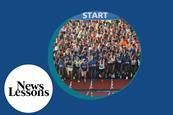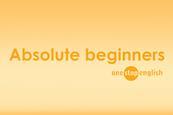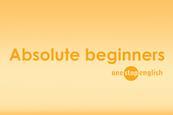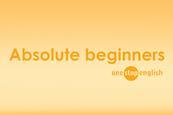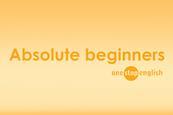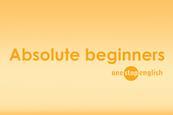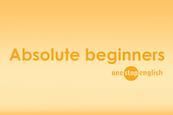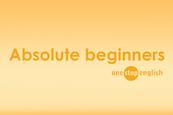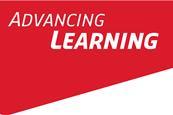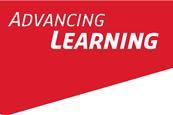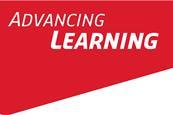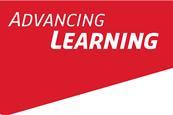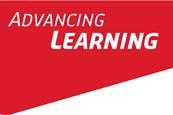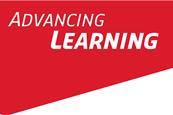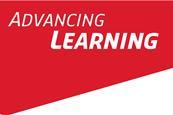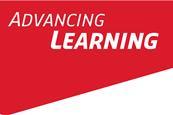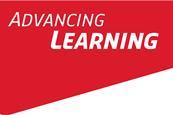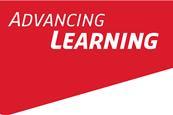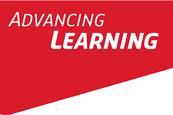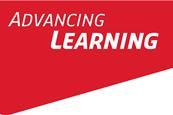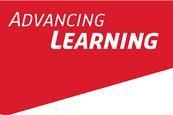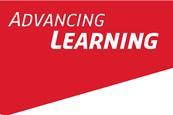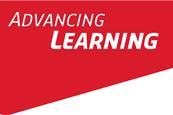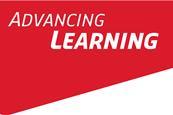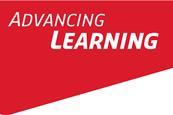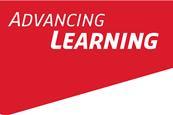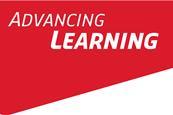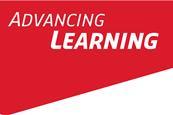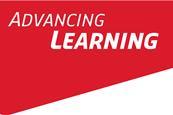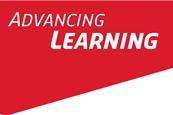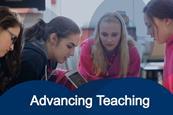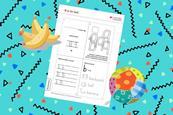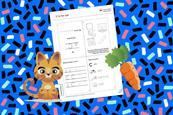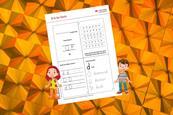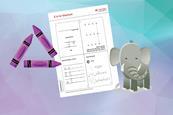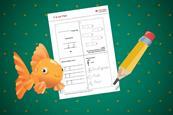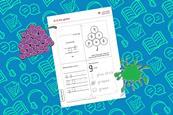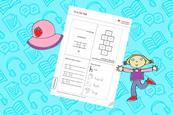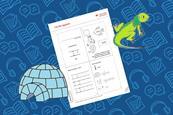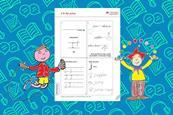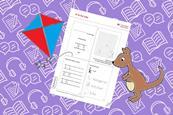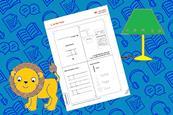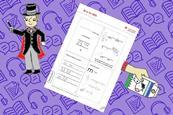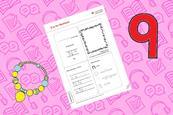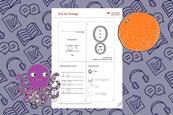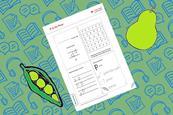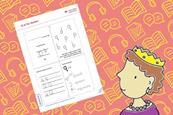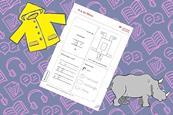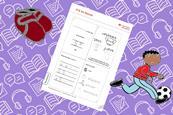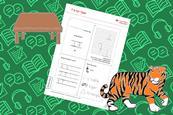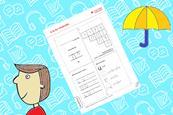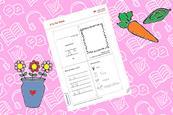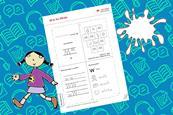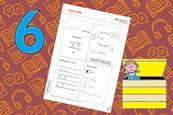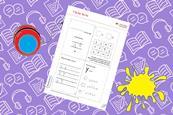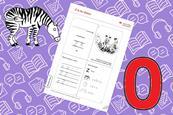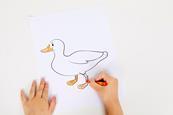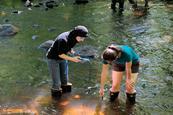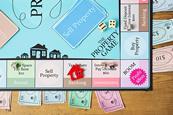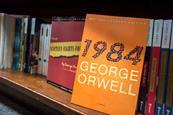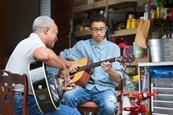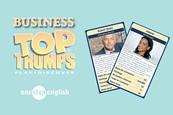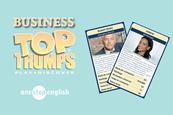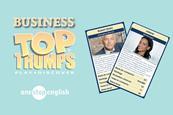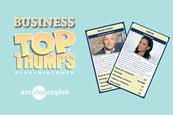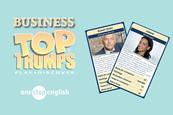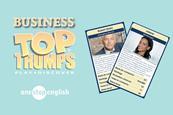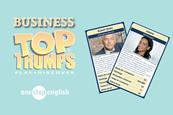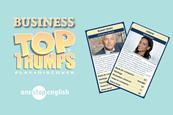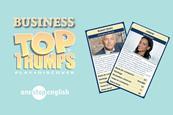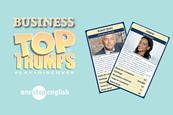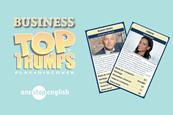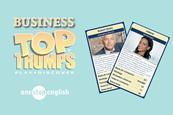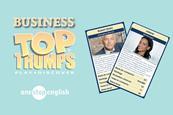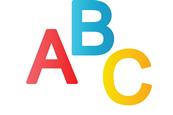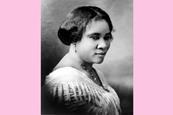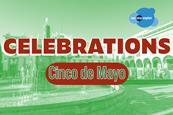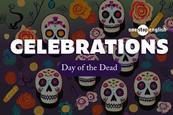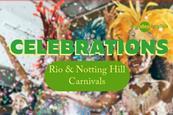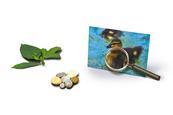Recognising symbols and abbreviations used in IT
This worksheet includes three matching and labelling activities to teach useful verbs and nouns often used when talking about computers e.g. ’cut’, ’copy’, ’paste’, ’screen’, ’printer’, ’keyboard’, etc. as well as the symbols that represent them.
Finding out information from a book cover
You can judge a book by its cover! In this lesson plan, pupils compare storybook dragons using front and back book covers. Consolidates superlatives and adjectives such as ’clever’, ’beautiful’ and ’funny’. Teacher’s notes suggest additional classroom activities to engage pupils and encourage reading.
‘Are they going to eat me alive?’: trail runners become prey in newest form of hunting
Read about a journalist’s experience of a ’clean-boot hunt’, an alternative to traditional hunting in the UK.
‘Beautiful locations to learn in’: readers’ favourite creative breaks
Read about some of the Guardian readers’ experiences with retreats and holidays focused on learning and personal growth.
‘Dear, did you say pastry?’: meet the ‘AI granny’ driving scammers up the wall
Read about how an AI bot impersonating a grandma has successfully stopped scammers.
‘Horrendous blisters’: Retired UK banker, 65, attempts to run 200 marathons in 200 days
Read about how one retired banker from Devon decided to run 200 marathons in 200 days, and how scientists are using him as a case study.
‘It brings you in and shelters you’: NHS creates ‘recovery gardens’ for staff and patients
Explore the benefits that wellbeing gardens bring to patients and staff in hospitals in the UK.
‘It made my day more meaningful’: the Japanese gen Zers attempting a two-hour limit on smartphone use
Read about the rule that a Japanese town put in place to restrict smartphone usage and the effect that it had on people.
‘It really is possible to be zero waste’: the restaurant with no bin
Read about a Mexico City restaurant’s efforts to produce ‘zero waste’ and how it works in partnership with local farmers.
‘No two days are the same and you can make a real difference’: four social workers reflect on their careers
Read about the career paths of four people and the different ways they became social workers.
‘Smellmaxxing’ and ‘frag heads’: how the gen Z perfume boom came up roses for indie brands
Read about how younger generations are creating new ways to wear perfumes.
‘Tastes like water’: how a US facility is recycling sewage to drink
Read about a California project that turns sewage into drinking water in less than an hour and could be a blueprint for other water-scarce regions.
‘The only thing you need is your own mind’: how to start meditating
Read about the different techniques of meditation and their benefits.
100 years ago: Was / were
Students take part in a team competition to practise was, were, wasn’t and weren’t.
A business crossword
A writing and speaking activity to complete a crossword by inventing and exchanging clues.
A business interview
A pairwork speaking activity role-playing an interview between a journalist and a company president.
A Camping Life
A song video and interactive games on the subject of camping.
A chemical code
A British English worksheet to combine the chemical symbols to form new words and complete the crossword.
A chiweenie with an overbite and 1.9m followers: how Tuna and Instagram’s other top dogs rake in thousands per post
Find out what ‘dogfluencers’ are and how they make money for their owners from social media content.
A day in my town
A British English worksheet to plan a day in the place where you live and write a letter explaining the plan to a foreign friend who is coming to visit you for a day.
A day in my town
An American English worksheet to plan a day in the place where you live and write a letter explaining the plan to a foreign friend who is coming to visit you for a day.
A different alphabet
To translate the code and complete the alphabet grid.
A dream
A British English worksheet to write the story of a dream using pictures.
A dream
An American English worksheet to write the story of a dream using pictures.
A dream house
A British English worksheet to look at a picture of a house for a short time and to memorize as many details as possible.
A Fair World: Primary (A2)—Education for Sustainable Development and Citizenship Programme
This lesson can help your students demonstrate a basic understanding of the UN and some of its ideals.
A Field Trip to Examine an Ecosystem
This lesson plan focuses on a class project to examine a local ecosystem e.g. a park. It includes detailed teacher’s notes, an observation grid for students to complete when in the park and a useful language sheet to help them write a report based on their findings.
A ghost’s guide to London: Episode 1: Camden
Lord Jeffrey, the Ghost of London, takes students on a thrilling audio tour of Camden. In this lesson students will: learn about Camden, past and present; practise listening for gist and reconstructing audio stories from memory; compare and contrast standard forms of English with colloquial expressions and then practise these ...
A ghost’s guide to London: Episode 2: King’s Road
Lord Jeffrey, the Ghost of London, takes students on a swinging audio tour of the King’s Road. In this lesson students will: learn about the King’s Road; practise listening for gist and reconstructing audio stories from memory; compare and contrast standard forms of English with colloquial expressions and then practise ...
A ghost's guide to London
Our cinematic listening series.
A ghost's guide to London: Christmas special: Part 1
In the first part of this two-part special, students will learn about the Christmas lights of Oxford Street and practise listening for gist.
A ghost's guide to London: Christmas special: Part 2
Lord Jeffrey, the Ghost of London, takes students on a thrilling audio tour of London at Christmas time. In the second and concluding part, students will: learn about Christmas traditions in Britain; practise listening for gist and reconstructing audio stories from memory; focus on the meaning, form and use of ...
A ghost's guide to London: Episode 3: Notting Hill
Lord Jeffrey, the Ghost of London, takes students on an audio tour of the Notting Hill area. In this lesson students will: learn about the Notting Hill; practise listening for gist and reconstructing audio stories from memory; compare and contrast standard forms of English with colloquial expressions and then practise ...
A ghost's guide to London: Episode 4: Covent Garden
Lord Jeffrey, the Ghost of London, takes students on an audio tour of the Covent Garden area. In this lesson students will learn about Covent Garden; practise listening for gist and reconstructing audio stories from memory; compare and contrast standard forms of English with colloquial expressions and practise these expressions ...
A ghost's guide to London: Episode 5: Shoreditch
Lord Jeffrey, the Ghost of London, takes students on an audio tour of trendy Shoreditch. Students will practise listening and telling stories from memory.
A ghost's guide to London: Episode 6: Soho
Lord Jeffrey, the Ghost of London, takes students on an audio tour of the Soho area. In this lesson students will: learn about Soho; practise listening for gist and reconstructing audio stories from memory; compare and contrast standard forms of English with niche colloquial expressions related to British pub culture; ...
A good place to live
A British English worksheet to compare your ideal place to live with where you are living now.
A good place to live
An American English worksheet to compare your ideal place to live with where you are living now.
A group story
An American English worksheet to practice telling a story using the past simple and past progressive tenses.
A healthy diet
In this lesson plan, pupils learn about a healthy diet and the origin of different foods while practicing the present tense, expressions of frequency, food vocabulary, time and days of the week.
A Healthy Diet: Secondary (A1+)—Education for Sustainable Development and Citizenship Programme
This lesson can help your students recognize healthy living as a balance of diet and exercise.
A holiday
A British English worksheet to guess details about a partner's last holiday and to find out how many predictions were right.
A holiday to remember
A British English worksheet to describe a holiday using pictures and to collect information and fill in a chart about other students' holidays.
A local’s guide to the 50 best places to visit in London
OK, we LOVE London, there’s no hiding it. It’s unique, exceptional, scary and exciting all at once and there’s so much to do. Here is a list of the top 50 not-to-be-missed places in London.
A manufacturing process
To describe a manufacturing process and decide on the layout of a manufacturing plant.
A marketing campaign
To plan and present a marketing campaign for a project.
A Matter of Opinion: Adult (B1+)—Education for Sustainable Development and Citizenship Programme
This lesson can help your students critically examine opinions on a controversial issue, including their own.
A matter of values
This lesson, which is based on an article from Business Spotlight magazine, is about the importance of ethical behaviour.
A phonetic crossword
A British English worksheet to use the phonetic clues to complete the crossword.
A picnic in the country - answers
Decide what the people in the scene are doing.
A picture postcard - answers
Turn pictures into words to read a postcard.
A problem
A group speaking activity to put a set of events into the correct order and date them.
A problem with a supplier
To take part in a typical exchange of faxes between a large customer and supplier.
A public relations problem - teacher's notes
To practise chairing and participating in meetings in the context of a meeting about dealing with a public relations crisis.
A public relations problem - worksheet
To practise chairing and participating in meetings in the context of a meeting about dealing with a public relations crisis.
A question of opinion
A speaking activity for students to express opinions on business, economics and money.
A romantic meeting
A British English worksheet to create a story by inventing answers to questions and writing them down.
A romantic meeting
An American English worksheet to create a story by inventing answers to questions and writing them down.
A Scandal in Bohemia
In Chapter 1, Holmes receives a mysterious letter advising him of an imminent visitor.
A Scandal in Bohemia: Chapter 2
In Chapter 2, Holmes agrees to help the King, whose past has come back to haunt him.
A Scandal in Bohemia: Chapter 3
In Chapter 3, Holmes recounts to Watson an eventful day spying on Irene Adler.
A Scandal in Bohemia: Chapter 4
In Chapter 4, Holmes puts his plan into action, hoping to trick Mrs Adler.
A Scandal in Bohemia: Chapter 5
In Chapter 5, Holmes and Watson take the king to Briony Lodge to claim the photo at last. The king is shocked to learn that Mrs Adler is now Mrs Norton and seemingly no longer loves the king. But Holmes also has a shock. It turns out he has underestimated ...
A shape exhibition
A great lesson plan that uses coloured pencils and cut-outs to introduce or review shapes.
A sign of the time
A British English worksheet to play a board game to practise using the past simple.
A superlative crossword
A British English worksheet to put the letters into the correct order and complete the crossword.
A third way
Hester Lott gives us some useful tips and suggestions for how to teach grammar.
A truly international experience
Karen Richardson, an author and freelance teacher based in Germany, agreed to be a onestopenglish roving reporter at the 41st annual IATEFL conference in Aberdeen.
A typical day
A pairwork activity to exchange information about two schedules.
A vacation
An American English worksheet to guess details about a partner's last vacation and to find out how many predictions were right.
A vacation to remember
An American English worksheet to describe a vacation using pictures and to collect information and fill in a chart about other students' vacations.
A very polite jigsaw
A British English worksheet to find a more polite way of saying each sentence.
Abbreviations 3 - answers
Write out the abbreviations in full.
Ability and skill
A lesson by Adrian Doff for students to practise using common expressions for talking about ability and skill.
About onestopenglish
Onestopenglish is the number one resource site for English language teachers, providing access to thousands of resources, including lesson plans, worksheets, audio, video and flashcards.
Absolute Beginners Series
Frances Marnie introduces a series of ESOL lesson plans aimed at beginner-level students with little or no previous experience in English.
Absolute Beginners: Unit 1 - Hello, what’s your name?
Help your absolute beginner students learn to introduce themselves in English with this fantastic lesson by Frances Marnie.
Absolute Beginners: Unit 10
In this lesson by Frances Marnie, students cover language including: station, ticket, single and return. Printable resources include comprehensive step-by-step teacher’s notes, a student worksheet and flashcards.
Absolute Beginners: Unit 11
In this lesson, on the theme of shopping: the supermarket, students learn language related to shopping and paying for food.
Absolute Beginners: Unit 12
In this lesson, on the theme of shopping: clothes, students learn language related to shopping and paying for clothes.
Absolute Beginners: Unit 13
In this lesson, on the theme of home, students learn language related to the house and life at home.
Absolute Beginners: Unit 14
In this lesson, on the theme of out and about, students learn language related to timekeeping and making arrangements.
Absolute Beginners: Unit 15
This lesson is a consolidation of past units, especially Units 11 to 14.
Absolute Beginners: Unit 16
In this lesson, on the theme of at a health centre, students learn language related to health and medical treatment.
Absolute Beginners: Unit 17
In this lesson, on the theme of at the dentist, students learn language related to their teeth and dental care.
Absolute Beginners: Unit 18
In this lesson, on the theme of the world of work, students learn language related to jobs and employment.
Absolute Beginners: Unit 19
In this lesson, on the theme of the world online, students learn language related to apps and the internet.
Absolute Beginners: Unit 2 - What's your phone number?
Help your absolute beginner students learn to give and ask for phone numbers in English while practising numbers 0-9 with this lesson by Frances Marnie.
Absolute Beginners: Unit 20 - Revision and Consolidation
Help your absolute beginner students review and consolidate what they learned in past units with this lesson by Frances Marnie.
Absolute Beginners: Unit 3 - How are you?
Help your absolute beginner students learn to talk about how they feel and where they come from with this lesson by Frances Marnie.
Absolute Beginners: Unit 4 - What’s her name?
Help your absolute beginner students learn to talk about other people’s names and origins with this lesson by Frances Marnie.
Absolute Beginners: Unit 5 - How much is it?
Help your absolute beginner ask how much things cost in English with this fantastic lesson by Frances Marnie.
Absolute Beginners: Unit 6
In this lesson by Frances Marnie, students cover language including: How much is it?, Can I have…, days of the week, pounds, food and drink. Printable resources include comprehensive step-by-step teacher’s notes, a student worksheet and flashcards.
Absolute Beginners: Unit 7
In this lesson by Frances Marnie, students cover language including What day is it?, today, tomorrow, yesterday, days of the week, I like / don’t like. Printable resources include comprehensive step-by-step teacher’s notes, a student worksheet and flashcards.
Absolute Beginners: Unit 8
In this lesson by Frances Marnie, students cover language including: months, family vocabulary, they / their and numbers 31-99. Printable resources include comprehensive step-by-step teacher’s notes, a student worksheet and flashcards.
Absolute Beginners: Unit 9
In this lesson by Frances Marnie, students cover language including: dates, colours, like / don’t like and transport. Printable resources include comprehensive step-by-step teacher’s notes, a student worksheet and flashcards.
Absurd riddles
To complete some riddles.
Acid Rain
How do we define acid rain? What causes it? What damage does it do? Show students how acid rain is formed and the harm it does to our environment in this set of useful CLIL resources.
Add a letter
A British English worksheet to complete a vocabulary word puzzle.
Add three letters
A British English worksheet to add three letters to each word to form a new word using the pictures to help.
Add two letters
A British English worksheet to complete the puzzle by adding two letters to each word to make new words.
Adjective auction
A speaking and writing activity for students to practise choosing adjectives and using them to write advertisements.
Adjective dominoes: Order of adjectives
A domino game at intermediate level to practise using adjectives in the correct order that can be played as a group game or a mingling game.
Adjectives
Articles, tips and activities on teaching adjectives, from our panel of expert authors.
Adjectives and noun modifiers in English – article
An article by Kerry Maxwell and Lindsay Clandfield covering ways to approach teaching adjectives.
Adjectives and noun modifiers in English – tips and activities
Kerry Maxwell and Lindsay Clandfield provide a selection of useful tips and ideas for teaching adjectives.
Adjectives with -ed and -ing 1
To fill in the missing words and complete an adjective puzzle.
Adjectives with -ed and -ing 2
To complete activities relating to adjectives of feeling.
Adjectives with -ed and -ing 2 - worksheet
To complete activities relating to adjectives of feeling.
Adrian Doff
Author of our excellent Business Tasks series, Adrian Doff, talks about his interesting background teaching during troubled times in the Middle East, and teases us with a riddle about a joke concerning a penguin.
Adrian Tennant
Onestopenglish's love affair with Adrian Tennant began many years ago, resulting in a very long list of fantastic resources for the site. Here, Adrian talks about teaching and training all over the globe, as well as his fondness for a wise fool named Nasreddin.
Adrian Underhill
Creator of the Sound Foundations Phonemic Chart, Adrian Underhill, regales us with tales of extreme teaching, improvisation and all that jazz ...
Advancing Learning
Welcome to Advancing Learning! A collection of articles by authors, experts, and teacher trainers about the latest ELT trends.
Advancing Learning: A practical guide to online professional development
How do you choose the right kind of online professional development to suit your budget and your needs? Experienced online trainer Gavin Dudeney gives tips and advice.
Advancing Learning: Confessions from an obsessive language learner: what I have learnt from continually studying languages for 32 years
Russell Stannard details how his own language learning has given him insights into how to better teach his students.
Advancing Learning: Developing real conversation skills
What is ‘conversation’ and how can teachers improve students’ conversation skills? This article, by Kateryna Protsenko, looks at the different ways to improve this skill.
Advancing Learning: Does anyone really need to use a dictionary?
Why use a dictionary when you can Google a word? Dictionary expert Michael Rundell answers this question by looking at the strengths of lexical resources today.
Advancing Learning: EMI: English as a medium of instruction
What are the challenges of teaching curriculum subjects through English at Primary level? Liz McMahon looks at some of the issues.
Advancing Learning: Empowering students with paraphrasing strategies
Paraphrasing is a skill that is often assessed in exams. Experienced teacher and assessment writer Judy Alden examines how to teach it, offering practical tips and techniques you can take straight to the classroom.
Advancing Learning: Five strategies to help students cultivate a growth mindset
What is a ‘growth mindset’, and how can it help your students? Teacher trainer and author Chia Suan Chong explains all and offers five strategies you can employ.
Advancing Learning: Gamification
This authoritative report by the President of the Board of Directors of the TESOL International Association, Dr Deborah Healey, examines gamification and its uses in education.
Advancing Learning: Global Citizenship Education in the ELT classroom
UCL researcher Matthew Hayes looks at why and how to bring Global Citizenship Education into the English language classroom.
Advancing Learning: Guilt-free teaching – how your students learn more when you plan less
Teacher and polyglot Katie Harris explains how you can save time and increase student engagement when lesson planning, so that you can lighten your workload without feeling guilty.
Advancing Learning: Helping very young learners improve their collaboration skills
Introducing collaborative tasks in a preschool setting can be daunting. Young learner expert Sarah Hillyard offers her tips and advice for teaching young learners how to collaborate, as well as suggesting activities that can help them learn through collaboration.
Advancing Learning: How to approach essay writing
What different approaches to essay writing are there and how can they help your learners? Academic English specialist and teacher trainer Kerry Boakes explains three different approaches to essay writing and offers practical tips on how they can be used in the classroom.
Advancing Learning: Long live 'Life Skills'!
What are ‘Life Skills’, and why should you teach them to your language students? David Spencer explains all.
Advancing Learning: Making blended learning useful and effective
Getting the blend right between face-to-face and online learning and technologies can be a challenge. Award-winning educational technologist and teacher trainer Russell Stannard reveals how to approach it for best results.
Advancing Learning: Moving towards learning-friendly teaching
What is ‘brain-friendly’ teaching, and how can it help your students advance their learning? Teacher trainer and author Anna Hasper explains all.
Advancing Learning: Multisensory learning in the inclusive classroom
Maria Byrne, Affiliate Trainer at NILE (Norwich Institute for Language Education) and lead tutor on the NILE Learning Differences and Inclusion course, shares her experience of working with dyslexic teens and suggests some simple, multisensory learning techniques that can help learners with dyslexia in the classroom.
Advancing Learning: Online Language Teacher Education
This informative research report, commissioned by the Association for Quality Education and Training Online, examines online education for language teachers.
Advancing Learning: Teaching mediation
‘Mediation’ is the latest ELT buzzword. But what exactly is it, and why should you teach it? Thom Kiddle, Director of Norwich Institute for Language Education and Vice Chair of Eaquals, explains all.
Advancing Learning: The challenges of speaking
Why is speaking a foreign language so difficult, and how can we help our students do it better? Teacher and editor Emma Fox explains why speaking is so challenging and offers a range of activities and techniques you can take straight to the classroom.
Advancing Learning: The Fifth Skill – ‘viewing’
Kieran Donaghy, expert in the use of visual arts in language teaching, explains what ’viewing’ is and how you can implement it in the classroom.
Advancing Learning: Top tips for managing your pre-primary classroom
Teacher trainer and author Lorena Peimbert offers tips and advice on managing pre-primary classes.
Advancing Teaching: An introduction
Our Advancing Teaching series features videos which advise teachers on and explain key concepts and methodology in ELT.
Advancing Teaching: Autistic students in ESL Classroom
Learn how you can help autistic students thrive in your classroom.
Advancing Teaching: Communicative Language Teaching
Learn about Communicative Language Teaching in this Advancing Teaching article and video.
Advancing Teaching: Cooperative Language Learning
Learn how to move away from the traditional approach to language teaching towards cooperative learning.
Advancing Teaching: Critical Thinking Skills
Learn about the best ways to develop your students’ critical thinking in this Advancing Teaching article and video.
Advancing Teaching: Global Citizenship Education
Learn about the fundamental ideas behind Global Citizenship Education and its importance in a modern ELT classroom.
Advancing Teaching: Global Citizenship Education Tips
Learn practical tips on how to incorporate Global Citizenship Education into your English lessons.
Advancing Teaching: Group Work Tips
Learn about the best way to make the most of your group activites in this Advancing Teaching article and video.
Advancing Teaching: Growth Mindset
Learn about Carol Dweck’s theory of Growth Mindset in this Advancing Teaching article and video.
Advancing Teaching: LGBTQ+ Visibility and Inclusion in ESL Classroom
Support and make your LGBTQ+ students feel more included and respected.
Advancing Teaching: Mental Health and Learning
Learn how to help and accommodate students going through difficult times or suffering from mental health issues.
Advancing Teaching: Online Interactive Lessons
Learn about how to create interactive online lessons in this Advancing Teaching article and video.
Advancing Teaching: Pair Work Tips
Learn about the best ways to use pair work in the class in this Advancing Teaching article and video.
Advancing Teaching: Positive Classroom
Learn about positive classroom techniques in this Advancing Teaching article and video.
Advancing Teaching: Social and Emotional Learning
Learn about Social Emotional and Learning and how to incorporate it into an ESL classroom.
Advancing Teaching: Visible Thinking Routines
Learn about the best ways to create routines that make the thinking process intentional.
Adventure Time
A song video and interactive games on the topic of going on an adventure.
Adverbs of time
To complete activities relating to adverbs of time.
Adverbs of time 1
To complete sentences using the correct adverbs of time.
Adverbs of time 2
To complete sentences using the correct adverbs of time.
Adverbs of time 3
To complete sentences using the correct adverbs of time.
Adverbs of time 4
To complete sentences using the correct adverbs of time.
Advertising
A pairwork activity to write short advertisements for products.
Advertising campaign
A British English worksheet to write and present a radio advertisement and to guess what products are being advertised.
Advertising campaign
An American English worksheet to write and present a radio advertisement and to guess what products are being advertised.
Advertising slogans
A reading and speaking activity where students study advertising slogans and speculate about which products they promote.
Advice and suggestions 1
To complete sentences using the correct verbs of advice and suggestion.
Advice and suggestions 2
To complete sentences using the correct verbs of advice and suggestion.
Advice on Teaching English spelling
An article offering suggestions for teaching English spelling from Pauline Taylor.
Afternoon file page
file page test
Afternoon file page 2
testing 123
Agencies
Students practise a range of different skills in relation to agencies.
Air and water transport
This lesson plan highlights the similarities and differences between air and water transport.
Air travel English
To introduce and extend language for travelling by plane and to introduce the passive voice (present simple).
Album tracks
A British English worksheet to complete titles of a Michael Jackson album by reading clues.
All Actions Have Outcomes: Primary (A1+)—Education for Sustainable Development and Citizenship Programme
This lesson can help your students recognize the difference between action and outcome and classify these as positive and negative.
Alphabet booklet: A is for Apple
Review and practise the letter A with your students using this engaging activity.
Alphabet booklet: B is for ball
Review and practise the letter B with your students using this engaging activity.
Alphabet booklet: C is for cat
Review and practise the letter C with your students using this engaging activity.
Alphabet booklet: D is for duck
Review and practise the letter D with your students using this engaging activity.
Alphabet booklet: E is for elephant
Review and practise the letter E with your students using this engaging activity.
Alphabet booklet: F is for fish
Review and practise the letter F with your students using this engaging activity.
Alphabet booklet: G is for green
Review and practise the letter G with your students using this engaging activity.
Alphabet booklet: H is for hat
Review and practise the letter H with your students using this engaging activity.
Alphabet booklet: I is for iguana
Review and practise the letter I with your students using this engaging activity.
Alphabet booklet: J is for juice
Review and practise the letter J with your students using this engaging activity.
Alphabet booklet: K is for kite
Review and practise the letter K with your students using this engaging activity.
Alphabet booklet: L is for lion
Review and practise the letter L with your students using this engaging activity.
Alphabet booklet: M is for Milk
Review and practise the letter M with your students using this engaging activity.
Alphabet booklet: N is for Necklace
Review and practise the letter N with your students using this engaging activity.
Alphabet booklet: O is for Orange
Review and practise the letter O with your students using this engaging activity.
Alphabet booklet: P is for Pear
Review and practise the letter P with your students using this engaging activity.
Alphabet booklet: Q is for Queen
Review and practise the letter Q with your students using this engaging activity.
Alphabet booklet: R is for Rhino
Review and practise the letter R with your students using this engaging activity.
Alphabet booklet: S is for Soccer
Review and practise the letter S with your students using this engaging activity.
Alphabet booklet: T is for Tiger
Review and practise the letter T with your students using this engaging activity.
Alphabet booklet: U is for Umbrella
Review and practise the letter U with your students using this engaging activity.
Alphabet booklet: V is for Vase
Review and practise the letter V with your students using this engaging activity.
Alphabet booklet: W is for White
Review and practise the letter W with your students using this engaging activity.
Alphabet booklet: X as in Six
Review and practise the letter X with your students using this engaging activity.
Alphabet booklet: Y is for Yo-yo
Review and practise the letter Y with your students using this engaging activity.
Alphabet booklet: Z is for Zebra
Review and practise the letter Z with your students using this engaging activity.
Alphabet game
A British English worksheet to play a word game by following instructions and doing forfeits when the rules are broken.
Alphabet game
An American English worksheet to play a word game by following instructions and doing forfeits when the rules are broken.
Am I Complicit?: Adult (B1+)—Education for Sustainable Development and Citizenship Programme
This lesson can help your students identify and address personal complicity in negative global outcomes.
Amazing facts
A British English worksheet to play a game of noughts and crosses by answering questions on natural and manufactured products.
Amazing facts
An American English worksheet to play a game of tick-tack-toe by choosing the correct answers to questions about natural and manufactured products around the world.
Amazing World of Animals
These lessons by Carol Read will build your Young Learners’ language skills and knowledge of the animal world.
Amazing World of Animals: Introduction and Project Map
An introduction to Carol Read’s Amazing World of Animals project including a comprehensive project map with a detailed view of each lesson.
Amazing World of Animals: Lesson 1 - How to classify animals
In this lesson, children learn to recognize the difference between vertebrates and invertebrates, classify animals, and identify and describe key features of animals in each group.
Amazing world of animals: Lesson 2: Animal habitats
In the second lesson of Carol Read’s Amazing world of animals, children learn to recognize that animals live in different habitats, to identify and describe key features of animal habitats and to understand ways in which animals are adapted to live in their habitat. Step-by-step teacher’s notes and student worksheets ...
Amazing world of animals: Lesson 3: Animal camouflage
In the third lesson of Carol Read’s Amazing world of animals, children learn to recognize the role of camouflage in animal adaptation and survival, to identify different types of animal camouflage and to observe and describe how animals are camouflaged.
Amazing world of animals: Lesson 4: Food and food chains
In the fourth lesson of Carol Read’s Amazing world of animals, children learn to recognize the difference between carnivores, omnivores and herbivores, understand the concept of a food chain, and identify and sequence animals and plants in food chains. Step-by-step teacher’s notes and student worksheets are included.
Amazing world of animals: Lesson 5: Animal life cycles
In the fifth lesson of Carol Read’s Amazing world of animals, children learn to recognize that all animals have life cycles, to understand similarities and differences between them, and to identify and describe the life cycles of two animals. Step-by-step teacher’s notes and student worksheets are included.
Amazing world of animals: Lesson 6: Endangered animals
March 3rd is World Wildlife Day. Help your students discover more about endangered animals with this project lesson for young learners.
Amazing World of Food
These lessons by Carol Read will build your Young Learners’ language skills while they explore the world of food.
Amazing World of Food: Introduction & Project Map
An introduction to Carol Read’s Amazing World of Food project including a comprehensive project map with a detailed view of each lesson.
Amazing World of Food: Lesson 1 - Where food comes from
In this lesson, children identify food imported from other countries and describe where it comes from and how far it travels to get there.
Amazing world of food: Lesson 2: The food pyramid
In the second lesson of Carol Read’s Amazing world of food, children learn to identify and describe food groups and what you need to eat to have a healthy, balanced diet, recognize and understand the role of nutrients in food, and plan a healthy picnic. Step-by-step teacher’s notes and student ...
Amazing world of food: Lesson 3: Fruit and vegetables
In the third lesson of Carol Read’s Amazing world of food, children learn to identify and describe different types of fruit based on climate and parts of plants where vegetables are from. They then design a leaflet to promote eating fruit and vegetables. Step-by-step teacher’s notes and student worksheets are ...
Amazing world of food: Lesson 4: Our sense of taste
In the fourth lesson of Carol Read’s Amazing world of food, children learn to understand the role of taste buds, identify four basic tastes and relate them to different parts of our tongue, and carry out a tasting experiment. Step-by-step teacher’s notes and student worksheets are included.
Amazing world of food: Lesson 5: Processed food
In the fifth lesson of Carol Read’s Amazing world of food, children learn to recognize the differences between natural and processed food, identify processed food that is good and bad for you and design a flow chart to show how food is processed. Step-by-step teacher’s notes and student worksheets are ...
Amazing world of food: Lesson 6: Food around the world
In the sixth lesson of Carol Read’s Amazing world of food, children learn to recognize that people from different countries eat different food, identify and describe a typical dish from their country and understand basic issues related to world hunger. Step-by-step teacher’s notes and student worksheets are included.
American English vocabulary lessons: the letter A
A is for animals.
American English vocabulary lessons: the letter B
B is for baseball.
American English vocabulary lessons: the letter C
C is for cars, clothes and city.
American English vocabulary lessons: the letter D
D is for drinks.
American English vocabulary lessons: the letter F
F is for food and finance.
American English vocabulary lessons: the letter G
G is for games.
American English vocabulary lessons: the letter H
H is for hospital
American English vocabulary lessons: the letter J
J is for jobs. A comprehensive lesson plan by Lindsay Clandfield in which students work with dictionaries to learn vocabulary items related to jobs. The lesson includes a section on culture, where students read and talk about illegal workers in America.
American English vocabulary lessons: the letter M
M is for money and movies.
American English vocabulary lessons: the letter N
N is for names and the natural world.
American English vocabulary lessons: the letter S
S is for shopping. A comprehensive lesson by Lindsay Clandfield in which students learn 15 new items of vocabulary related to shopping and review phrasal verbs in a shopping role-play.
American English vocabulary lessons: the letter W
W is for weather and war.
American English: Education – teacher's notes
Students practise vocabulary related to education.
American English: Education – worksheet
Students practise vocabulary related to education.
American English: In the classroom
Teaching the vocabulary of the classroom used in American English.
American football
To name American football players.
Amnesty
New president offers amnesty. Who will be released?
An informal meeting
To discuss possible ways of motivating a sales team.
An obstacle course
In this lesson plan, pupils create an obstacle course using cut-outs to practise ‘over’, ‘through’ and other prepositions of movement.
An official visit
A pairwork reading and speaking activity where students complete a schedule for an official visit by the senior directors of a company.
An order
A pairwork activity to place an order by telephone.
Ancient Egypt
Cross-curricular materials for teaching English through the topic of Ancient Egypt
Ancient Greece
These resources explore ancient Athens: its organisations, institutions, and what Athenian democracy meant for a burgeoning population in one of the most powerful cities in Greece.
And the Oscar goes to ...
An information-gap activity for talking about the movies.
Anecdotes: stories from life 1 - answers
To complete listening and speaking activities about anecdotes.
Anecdotes: stories from life 2 - answers
To complete listening and speaking activities about anecdotes.
Angkor, Cambodia
In this lesson plan, students read the article about the historic and sacred site of Angkor Wat in Cambodia. The exercises focus on comprehension checking and word definition.
Animal characteristics
This lesson plan introduces the external characteristics of animals by having pupils complete animal riddles, draw animals and then create new riddles for their partner.
Animal classification
This lesson plan consolidates the names of animals, the characteristics of mammals and practises using is and isn’t.
Animal habitats
In this lesson plan, groups of students look at colour pictures of exotic animals and decide which biome they might live in and how they have adapted to their surroundings. A matching activity asks students to connect pictures of animals with their habitats and the corresponding biomes.
Animal instinct
A British English worksheet to pretend you are an animal and to give personal information as if you were that animal. To guess what animals other people are pretending to be.
Animal instinct
An American English worksheet to pretend you are an animal and to give personal information as if you were that animal. To guess what animals other people are pretending to be.
Animal life in the Sahara desert
A worksheet with reading and vocabulary activities on the topic of animals that live in the desert.
Animals
A British English worksheet to find the correct parts of the animal's names and assemble them under the pictures.
Animals: Feet Talk!
Feet are fascinating but what are the differences between human feet and bird feet? In this lesson plan, students match feet photos to the names of birds before listening to a description of the feet of woodpeckers, ducks, ostriches and how their feet are suited to their behaviour. A gap-fill ...
Answers
This worksheet contains answers to the ’What’s at sea?’, ’Energy codebreaker’, and ’Save some for me!’ activities.
Answers
Answers to the 'Weather crossword' activity.
Answers
Answer keys for the Light it up!, Mirror maze, Musical medley, Colours of the rainbow, Hamster power, Right mixture, Lucky dip and Castle Siege activities.
Answers – 2
Answers to the 'Mirror maze', 'Musical medley', 'Colours of the rainbow', 'Right mixture', 'Lucky dip', and 'Castle siege' activities.
Answers for questions
A listening and speaking activity to match questions to answers.
Any regrets?
A reading and speaking activity to act out an interview between a business journalist and a jailed accountant.
Anything's possible
A British English worksheet to complete some sentences as if you were your partner.
Anything's possible
An American English worksheet to complete some sentences as if you were your partner.
Applied linguistics: Choosing a method
Andy Curtis, series editor of Palgrave’s Applied Linguistics for the Language Classroom book series, looks at how we can involve learners when choosing teaching methods.
Applied linguistics: Empowering language learning through assessment
Director of Assessment and Evaluation, Liying Cheng, and Associate Professor of Language Assessment and Testing, Janna Fox, look at how teachers can make more of assessment in the classroom.
Applied linguistics: Mobile phones
Leonardo Mercado, the Academic Director of Euroidiomas, discusses whether there is a place for mobile phones in the language classroom.
Applied linguistics: Research methods for language teaching
Netta Avineri, Assistant Professor of TESOL at the Middlebury Institute of International Studies at Monterey, offers a step-by-step guide to conducting research in the language classroom.
Applied linguistics: Teaching pronunciation
Associate Professor of English, Charles Hall, and Senior English Language Fellow, Christopher Hastings, offer some guidelines for teaching pronunciation.
Appraisal interviews
A worksheet to discuss appraisal interviews.
Approaches used in Compass
In this article, Lizzie Pinard explains the theory behind the teaching approaches used in Compass and offers advice on how to use them effectively.
Approaches used in EAP for the 21st century learner
This article provides a guide to the award-winning EAP series from author, Aylin Graves.
Are noise-cancelling headphones impairing our hearing skills? Some audiologists are beginning to worry
Explore the possible effects of overusing noise-cancelling headphones and whether they can cause hearing problems.
Are you a learner of the future?
Students talk about possible future developments in education and decide whether or not they are already a ‘learner of the future’.
Are you a natural leader?
A worksheet to discuss guidelines for leading teams.
Are you experienced?
A British English worksheet to read a list of life experiences and find out how experienced you are.
Are you experienced?
An American English worksheet to read a list of life experiences and find out how experienced you are.
Are you in tune?
A British English worksheet to see how well the students know each other by predicting a partner's answers to questions about their musical taste.
Are you in tune?
An American English worksheet to see how well the students know each other by predicting a partner's answers to questions about their musical taste.
Around the world - answers
To match countries with their shape and spell them correctly.
Around the world in ten minutes
An American English worksheet to talk about things you've done and things you haven't done yet by playing a board game.
Art and Drawing: Integrated Skills CLIL Lesson
This fascinating lesson focuses on perspective: students read an illustrated text on perspective in drawing, followed by true/false and vocabulary exercises. A listening exercise focuses on Claude Monet and Impressionism; a writing exercise gets students to recreate a text on the Parthenon. A pairwork collaborative project gets students to describe ...
Art gallery
Through this ’spot the difference’ exercise, students will learn key art history terms.
Article: Activity types in CLIL
Can CLIL deliver? Phil Ball looks at some of the challenges facing CLIL, as it attempts to both gain a foothold in standard educational practice and at the same time convince its doubters that it can really deliver.
Article: CLIL for ELT
In this article, Keith Kelly explores the definition of CLIL and gives advice to ELT teachers on how to maximize results in the classroom.
Article: Content-based learning in the Primary classroom
Carol Read offers practical guidance on content-based learning, including tips for choosing suitable cross-curricular topics and activities.
Article: Defining CLIL parameters
In this article, Phil Ball challenges the idea that CLIL is an ‘umbrella term’ that covers many educational practices. Instead, he suggests that CLIL is actually a specific methodological practice and gives his own six-point definition.
Article: Explaining the metaphor
An article on approaches to teaching metaphors.
Article: Exploring CLIL
Peeter Mehisto, lead author of Uncovering CLIL and a practising CLIL teacher trainer, explores the concept of CLIL - what it is and equally as important, what it is not. He examines why CLIL is gaining in popularity and how it will affect the way you teach.
Article: How do you know if you're practising CLIL?
Perhaps due to its relatively recent birth as an approach with a label, CLIL shelters a broad range of practice under its pedagogic roof. But if it is to be taken seriously as an approach, and then adopted by the world of pedagogy, it needs to have identifiable limits. We ...
Article: Investigating investigations in CLIL: Part 1
Investigative activities are often used in subjects like maths, science or design and technology and can achieve active learning in the classroom, if planned carefully. This article by Jean Brewster looks at different types of investigation in CLIL and the process skills students can learn through them.
Article: Investigating investigations in CLIL: Part 2
In the second part of her article on investigations in CLIL, Jean Brewster considers typical stages in an investigation, different types of exercise, some investigative ideas and how to evaluate.
Article: Language, concepts and procedures: Why CLIL does them better!
Can CLIL improve language and subject teaching at the same time? Phil Ball examines this bold claim by contrasting task design in native speaker and CLIL lessons, looking at the procedures and processes students undergo to acquire content knowledge.
Article: Managing CLIL Programming
Launching and developing a sustainable CLIL programme need not be a daunting prospect for schools. In this practical and insightful article, leading CLIL author Peeter Mehisto guides us through the planning and the pitfalls that can make or break a CLIL programme.
Article: Planning CLIL lessons
To overcome the language barrier, CLIL teachers need to plan their lessons to include language support as well as content teaching. John Clegg explores the strategies that can be applied.
Article: Skills for CLIL
In this article John Clegg outlines the language and learning skills which a learner learning a subject through the medium of English as a second language (L2) requires.
Article: Teacher collaboration in CLIL
In this article, John Clegg states the importance of CLIL teachers collaborating with others to create a powerful learning system.
Article: The need for a more inductive methodology for CLIL teachers
Adrian Tennant sets out why he thinks the issue of methodology is as important and challenging as the issue of language proficiency.
Article: The role of TKT: CLIL in professional development courses?
Kay Bentley questions and explores the role of TKT: CLIL in the professional education sphere.
Article: What is CLIL?
Despite the self-explanatory nature of the phrase 'Content and Language Integrated Learning', the true nature of CLIL still remains elusive. This introductory article (of four) briefly analyses a series of broadly-accepted definitions of CLIL as a way of highlighting its most significant characteristics.
Article: Working with words
Vocabulary is a very broad area in foreign language learning. In this article Keith Kelly explores two main points: identifying which words to teach and techniques for dealing with new words.
Articles 1
A British English worksheet to complete the sentences by filling in the missing articles and identify the mistakes.
Articles 1
To complete sentences with the correct article.
Articles 2
To complete sentences with the correct article.
Articles 2
A British English worksheet to complete activites by identifying the correct articles.
Articles and countable and uncountable nouns
A British English worksheet to correct the mistakes made in sentences by filling in the appropriate articles and countable and uncountable nouns.
Arts and crafts
Lesson plans including drawing and design ideas.
As different as chalk and cheese
An American English worksheet to create a story by inventing answers to questions and writing them down.
As different as chalk and cheese
A British English worksheet to create a story by inventing answers to questions and writing them down.
Ash Wednesday
Ash Wednesday marks the first day of Lent for western Christian churches. Traditionally, a mark on the forehead is made with the ashes from burned palms as a symbol of death, sorrow and sin. The marking also reminds churchgoers where the ashes come from. It is a reminder of baptism, ...
Ask and answer: Gerund and infinitive
A small-group ask-and-answer activity to practise constructions.
Ask the experts: Structuring a beginner-level business course
Rosemary Richey offers guidance to a teacher who is unsure of how to go about teaching business to beginners.
Asking questions
An oral interview speaking class for practising: short answers, the present simple, verb to be, can, future (going to); Numbers and letters; basic vocabulary.
Assessment
There was much discussion on the topic of assessment. Colleagues stressed that CLiL means that both the content and the language are taught and that is why both should be evaluated at the same time. Another colleague suggested an alternative way of doing assessment is a mark for content and ...
Assessment matters: Assessing skills
Adrian Tennant looks at how teachers test the four skills of reading, writing, listening and speaking and the fairness of assessment techniques.
Assessment matters: Assessing tasks and lessons
Adrian Tennant looks at ways in which teachers can assess lessons in order to judge the success of both their classroom delivery and students’ learning.
Assessment matters: Assessing young learners
Adrian Tennant looks at how young learners feel about assessment; marks, grades and comments; ongoing assessment; self-assessment; and the general benefits of assessment for this age group.
Assessment matters: Designing your own tests
Adrian Tennant explores some of the issues behind designing your own tests and gives some practical examples of how to go about it.
Assessment matters: Diagnostic tests
Adrian Tennant considers 'diagnostic tests', comparing them to other forms of assessment as well as giving some practical suggestions.
Assessment matters: Exams extra (elementary to intermediate)
In this article, Adrian Tennant takes a look at some of the exams materials available on onestopenglish outside of the main 'Exams' section and suggests how they could be used in your teaching.
Assessment matters: Exams extra (upper-intermediate to proficiency)
In this article, Adrian Tennant takes a look at some of the exams materials available on onestopenglish outside of the main 'Exams' section and suggests how they could be used in your teaching.
Assessment matters: Portfolios
Adrian Tennant explains how student portfolios can be organized and maintained, and outlines some of the advantages and disadvantages of using them for assessment.
Assessment matters: Preparing students for tests and exams
Adrian Tennant looks at how most exams test a student’s ability to do tests and gives some practical tips aimed at helping you prepare your students.
Assessment matters: Self-assessment and 'Can do' statements
Adrian Tennant takes a look at self-assessment and, in particular, ‘Can do’ statements: a current buzzword and term employed by the Common European Framework of Reference (CEFR).
Assessment matters: What is assessment?
Adrian Tennant takes a look at what is meant by assessment in this introductory article in the Assessment matters series.
Assimilation and elision
This comprehensive article by Jonathan Marks explains the most common types of assimilation and elision.
At a hotel - teacher's notes
To practise a series of typical hotel interactions such as telephone booking, checking in and out and complaining.
At a hotel - worksheet
To practise a series of typical hotel interactions such as telephone booking, checking in and out and complaining.
At home
Write the words for the household items into the grid to find three English proverbs.
At the cinema
To put film titles into categories by deciding if they relate to males or females.
At the theatre
A British English worksheet to complete the play titles by using the clues to work out the missing words.
At the Zoo
A song and interactive games on the topic of animals and going to the zoo.
At work
A worksheet on the subject of day-today work.
Atoms, elements and compounds
More than 80 vocabulary words, including definitions and contextual sentences.
Attributing: Geography
Keith Kelly looks at examples of language used in describing attributes and characteristics from the area of geography, covering adjective, noun and verb phrases.
Attributing: Science
Keith Kelly looks at examples of language used in describing attributes and characteristics from the area of science, covering adjective, verb and noun phrases.
Australian women are doing 50% more housework than men. It’s creating ‘volcanic levels of resentment’
Read about how women in Australia do the majority of unpaid domestic work and the possible ways to address the problem.
Aviation
A lesson plan by Tim Bowen that practises aviation-related vocabulary.
Aviation: Lesson plan
Presentation and practice of aviation-related vocabulary.
Avoiding projects
Some common reasons why teachers might avoid project work.
Awareness, appropriation and autonomy
In this article from the archives of English Teaching professional magazine, Scott Thornbury says that learning how to speak is as important as learning what to say.
Aylin Graves
Aylin Graves, author of EAP for the 21st century learner, tells us about winning writing awards, being beyond embarrassment and how she keeps her writing fresh.
B2 Business Vantage: Listening: Part 1
An article by Russell Whitehead about the Cambridge English B2 Business Vantage (formerly BEC Vantage Business English) exam Listening component Part 1.
B2 Business Vantage: Reading: Part 1
An article by Russell Whitehead about the Cambridge English B2 Business Vantage exam reading component part 1.
B2 Business Vantage: Reading: Part 4
An article by Russell Whitehead about the Cambridge English B2 Business Vantage (formerly BEC Vantage Business English) exam Reading component Part 4.
B2 Business Vantage: Speaking: Part 2
An article by Adrian Doff about the Cambridge English B2 Business Vantage exam (formerly BEC Vantage Business English), speaking part 2 (the 'long turn' task or mini-presentation), with tips for preparing candidates and a sample task and explanation.
B2 Business Vantage: Writing: Part 1
An article by Russell Whitehead about the Cambridge English B2 Business Vantage (formerly BEC Vantage) exam Writing component Part 1.
Badges
A British English worksheet to assemble the badges to make phrases associated with the pictures.
Balint Gyimesi
A huge fan of role-play games and popular culture, Balint Gyimesi has worked in ESL for nearly ten years. A double lesson share winner, Balint gives us an insight into his twin loves of teaching and writing and how these have helped him win lesson share.
Bang, bang!
This inventive speaking skills lesson by Karen Richardson gives students practice in describing an incident.
Bank products and services
To practise and expand grammar, vocabulary and phrases associated with banking products and services.
Bank profiles
To practise and expand vocabulary and phrases associated with bank profile description.
Basics
This section has articles and lessons plans covering basic business skills from describing a process to writing a letter as well as numerous business worksheets for a variety of business contexts.
Battlefield or bed of roses?
A British English worksheet to categorize vocabulary and discuss attitudes to being in love.
Battlefield or bed of roses?
An American English worksheet to categorize vocabulary and discuss attitudes towards being in love.
Battleships
A British English worksheet to find hidden words or sentences by naming numbered squares on a grid.
Be Considerate: Primary (A1)—Education for Sustainable Development and Citizenship Programme
This lesson can help your students learn how to behave in a considerate and respectful way in their community.
Be Fit, Be Active: Primary (PreA1)—Education for Sustainable Development and Citizenship Programme
This lesson can help your students engage with ideas about healthy living through exercise.
Be Kind: Pre-Primary—Education for Sustainable Development and Citizenship Programme
This lesson can help your students recognize that personal behavior can have a positive or negative impact on others.
Be What You Want to Be: Pre-Primary—Education for Sustainable Development and Citizenship Programme
This lesson can help your students recognize that jobs and family roles are not gender specific.
Beatles crossword
To complete a crossword about The Beatles.
Before and after
A reading and speaking activity to talk about how things have changed in companies.
Before, during and after the reading test
Help students to prepare for the academic reading component of the IELTS exam with attached practice reading test.
Beginning reading and writing: Internalizing letters
Olha Madylus offers a selection of physical activities that help children remember the shape of letters they've been introduced to.
Beginning reading and writing: Introducing letters
Olha Madylus offers a selection of tips and activities for familiarising children with the sound of English and offers a practical way to introduce the alphabet using phonics.
Beginning reading and writing: Learning words
Olha Madylus offers a selection of tips and activities to help your students begin to put letters together to form words.
Beginning reading and writing: Recognition games
Olha Madylus offers a selection of games that help children recognise and use the letters they've been introduced to, including beginning to write them.
Beginning to teach reading and writing
This section contains activities and games to help with beginning to teach reading and writing to your Young Learners. Materials cover introducing letters, internalizing and recognising letters, and learning words.
Beginning to teach vocabulary
A bank of tips and ideas for teaching vocabulary to Young Learners. Materials cover pronunciation and drilling, techniques for presenting new vocabulary and a series of practice activities.
Beginning vocabulary: Practice activities
Olha Madylus offers a selection of fun and practical activities you can use to help your young learners practise the vocabulary they've learned.
Beginning vocabulary: Presenting new vocabulary
Olha Madylus gives advice on how to present and practise vocabulary, using a practical staged approach.
Beginning vocabulary: Pronunciation and drilling
Olha Madylus gives advice on how to get your young learners practising pronunciation, using techniques including choral repetition, songs and tongue twisters.
Beyond on onestopenglish
Your teenage students will love using this fantastic series of British English lessons prepared by Karen Kovacs.
Beyond on onestopenglish: Arts and Media
Karen Kovacs introduces this collection of topical lessons for teenagers related to art, television, literature, theatre, advertising, and the press. Students practise speaking and further subskills while being creative.
Beyond on onestopenglish: Knowledge
Karen Kovacs introduces this collection of topical lessons for teenagers related to art, television, literature, theatre, advertising, and the press. Students practise speaking and further subskills while being creative.
Beyond: Arts and Media: Advertising
In this lesson, students can create their own magazine and TV advertisments.
Beyond: Arts and Media: Art
In this lesson, students take an art survey, talk about art galleries and paintings, learn about Leonardo Da Vinci, explore the mysteries of the Mona Lisa and write a story.
Beyond: Arts and Media: Artists
In this lesson, students give opinions about art, draw a picture, pretend to be art critics, describe a picture of a room and talk about their own room.
Beyond: Arts and Media: Books
In this two-part lesson, students read about a book-sharing initiative, discuss their reading habits and read about Britain’s favourite book.
Beyond: Arts and Media: Graffiti
In this lesson, students read about famous walls and graffiti, create their own graffiti artwork, describe a bedroom wall and learn wall idioms.
Beyond: Arts and Media: Literary lives
In this lesson, students read biographies, interview their partner and create questions to get information from their teacher.
Beyond: Arts and Media: Magazines
In this lesson, students can exchange celebrity gossip and create their own magazine.
Beyond: Arts and Media: Newspapers
In this two-part lesson, students look at and discuss different newspaper websites, learn about newspaper vocabulary, and write their own newspaper story.
Beyond: Arts and Media: Newspapers 2
In this lesson, students can create their own newspaper front page and write a news story.
Beyond: Arts and Media: Performance Art
In this lesson, students can create and discuss their own musicals and street performances.
Beyond: Arts and Media: Radio
In this lesson, students can create their own radio programme.
Beyond: Arts and Media: Shakespeare
In this lesson students learn about Shakespeare’s life and words.
Beyond: Arts and Media: Soap operas
In this lesson, students read about soap operas and write their own soap opera scene.
Beyond: Arts and Media: Television
In this two-part lesson, students discover if they are TV addicts, and learn about adverbs of frequency, TV vocabulary and types of TV programmes.
Beyond: Knowledge: Classrooms
In this lesson, students practise describing and comparing classrooms, design their dream classroom, evaluate and discuss school subjects and revise useful classroom language.
Beyond: Knowledge: Computers
In this lesson, students read about PC keyboards and play a typing game.
Beyond: Knowledge: Dictionaries
In this lesson, students complete an information-gap activity about Samuel Johnson’s famous dictionary, learn how to be better dictionary users, identify parts of speech and compete in a dictionary quiz.
Beyond: Knowledge: Discoveries and inventions
In this four-part lesson, students will test their memories / knowledge, read about scientific discoveries and inventions, invent something new, and complete a patent form for a new invention.
Beyond: Knowledge: Geography
In this lesson, students identify flags, create a world flag, play a team board game and complete a geography quiz.
Beyond: Knowledge: History
In this two-part lesson, students read about how Hollywood changes history, discuss historical quotes, do a historical fact quiz and write a fact sheet.
Beyond: Knowledge: History: The 20th century
In this lesson students do a quiz about the 20th century.
Beyond: Knowledge: Languages
In this two-part lesson, students will learn about the influence of English on global languages.
Beyond: Knowledge: Learning
In this lesson, students complete a questionnaire to find out about their learning style, work in groups to write suggestions on how to improve their learning and discover the history of encyclopaedias.
Beyond: Knowledge: Living in the past
In this two-part lesson, students will read about life in the year 1900.
Beyond: Knowledge: Maths and money
In this lesson, students learn about maths and pocket money.
Beyond: Knowledge: Numbers
In this two-part lesson, students match numbers with pictures, find numbers in the classroom, play a numbers game and complete a ’fill a head with numbers’ fact sheet.
Beyond: Knowledge: Phones
In this lesson, students talk about mobile phones and technology.
Beyond: Knowledge: The brain
In this three-part lesson, students do a quiz about the human brain and test their memories, discover which side of their brain is dominant and find out about Albert Einstein.
Beyond: Knowledge: The Planets
In this lesson, students learn about the planets, the space race and the Mars Mission.
Bilingual schools in Argentina: Has CLIL always been around?
Laura Renart, a teacher and teacher trainer, shares her insights into bilingual education in Argentina.
Bingo!
An American English worksheet to practice the past participle form of regular and irregular verbs.
Bingo: Irregular verbs
An American English worksheet to play a game of bingo and to recognize the past simple form of irregular verbs as the infinitive is called out.
Bioethics
In this lesson plan, students read a text and then discuss the difficult ethical questions surrounding genetic engineering and cloning.
Biology vocabulary
A comprehensive reference sheet illustrates key vocabulary for biological processes, cell and plant structure, and basic animal anatomy.
Biology: An introduction
A short history of biology tracks the study of life through the ages, showing our fascination with the living world around us, from the ancient Egyptians to Charles Darwin’s theories and the study of DNA. The second reading text is a letter from a professor of biology, spelling out the ...
Biomass Power
What is biomass and how is it used to make electricity? Does it add to climate change or is it a clean, green source of energy? Find out in this set of resources.
Blackbeard the pirate
In this lesson plan, students read about Blackbeard and then ask a partner questions about him.
Blackout
A speaking activity with emphasis on oral fluency; students role-play a series of mobile phone calls that all take place during a blackout in New York.
Blast off!
Find out what’s shooting through space and then colour the picture in this fun Science Museum activity sheet.
Blended Learning
In these articles, Daniel Barber takes a closer look at Blended Learning and what it means and offers tips and ideas for using this approach in your classroom.
Bliss
This advanced-level story, by Katherine Mansfield, is set in London in the early 1900s. It is about a woman called Bertha who is overcome with happiness because she has everything – but all is not as it seems. It is told in four parts; each part contains audio and an ...
Bliss: Part 1
This advanced-level story, by Katherine Mansfield, is set in London in the early 1900s. It is about a woman called Bertha who is overcome with happiness because she has everything – but all is not as it seems. It is told in four parts; each part contains audio and an ...
Bliss: Part 2
Part 2 of this story continues with Bertha and Harry holding a dinner party, however, their colourful guests are here but Harry hasn’t arrived home yet. In this lesson, the students will: recall details of the life of the protagonist; listen to a description in order to complete a drawing ...
Bliss: Part 3
Part 3 of this story continues with the dinner party in full swing. Harry has finally arrived but Bertha is more preoccupied with the mysterious Miss Fulton. In this lesson, the students will: test one another on their knowledge of the details of the story up to now; listen in ...
Bliss: Part 4
Part 4 of this story concludes with Bertha falling victim to a grave misunderstanding. In this lesson, the students will: predict the ending of the story; listen for detail; discuss the meaning and symbolism of the story; explore the adoption of characters’ voices when storytelling; act out a dialogue between ...
Board game: Adverbs
An accuracy-based board game activity in which students perform actions in the manner of various adverbs.
Board game: can (ability)
A fluency-based board game at elementary level to practise can in statements, negatives and questions.
Board game: Frequency adverbs
A board game at elementary level to practise the present simple with frequency adverbs and time expressions for groups of three to four students.
Board game: Indefinite pronouns
A board game activity at intermediate level to practise using some-, any-, every-, no- + -one, -thing, -where.
Boardgame: Comparatives
A small-group board game to practise comparatives.
Boardgame: Superlatives
A groupwork board game to practise the superlative form of adjectives.
Bodies in orbit
What keeps the moon up in the sky? Why is Pluto no longer a planet? Students practise making notes based on a teacher-led listening and find the answers to questions through listening. A third activity on ‘Dwarf planets’ tests students’ ability to remember and interpret what they have heard.
Body parts and movement
Run! Jump! Kick! Throw! Catch! In this lesson plan, your class will not only learn these action verbs but also discover which muscles and body parts we use to perform these actions. Activities that are guaranteed to get the class moving.
Body Rock
A song video and interactive games on the subject of exercise.
Body talk - answers
Complete the compounds.
Bones, muscles and joints
A lesson plan with labelling and information gap activities to teach about the human body, including key vocabulary words.
Book titles
A British English worksheet to use the pictures to match the books with their authors.
Books
A British English worksheet: In each group of four books, put the same two letters in the squares to complete the titles.
Boost Your Vocabulary: Books & Stories
Help your students talk about their favourite books while using adjectives and prepositional phrases.
Boost Your Vocabulary: Going Places
Help your students talk about their favourite holiday spots while using new vocabulary.
Boost Your Vocabulary: Hobbies & Free-time Activities
Help your students talk about their hobbies and free-time activities while using collocations and superlatives.
Boost Your Vocabulary: Is This Art?
Help your students talk about their favourite art while using new vocabulary.
Boost Your Vocabulary: It’s a plan!
Help your students understand the difference between the words practise and rehearse while using new phrases and expressions.
Bottom half only
A British English worksheet to complete the words and pictures by adding the top half to each one. Match the words with the pictures.
Brad's story
An American English worksheet to write and ask questions to obtain information in order to complete a text.
Brainstorm
An American English worksheet to play a team game by guessing words in different categories.
Brainstorm
A British English worksheet to play a team game by guessing words in different categories.
Branches of law
A lesson to equip students with the knowledge and language to discuss the different branches of law in England and Wales, and to compare these to the legal system in their own countries.
Branding
Students are introduced to the topic of branding in this instalment of David Baker’s Marketing series. Students read a text about different types of branding and listen to a conversation between a marketing manager and an intern about branding.
Branson and Roddick
A pairwork dictation activity about two famous UK entrepreneurs.
Breach of contract
A reading and speaking activity to simulate a three-sided negotiation between a client, an architect and a firm of builders.
Brian Boyd
Brian Boyd, author and creator of Grammarman, reveals all about the origins of his correction-crusading superhero and life in bustling Bangkok. He also admits that although he’s a master illustrator, drawing diagrams on a whiteboard isn’t necessarily his strong point!
British English vocabulary lesson: Hospital
This lesson plan, available at Elementary and Upper intermediate levels, practises vocabulary connected with hospitals.
British English vocabulary lessons: A sign of the times
A lesson to encourage students to discuss the language used in signs.
British English vocabulary lessons: listen to / hear
Students are often unsure when to use look at, see or watch, and when to use listen to or hear. This lesson plan by Karen Richardson aims to practice this vocabulary in context.
British English vocabulary lessons: the letter C
C is for cinema, climate, clothes and colour.
British English vocabulary lessons: the letter D
D is for describing people.
British English vocabulary lessons: the letter E
E is for education.
British English vocabulary lessons: the letter F
F is for family, friends, films and fire.
British English vocabulary lessons: the letter H
H is for hospital, happy and sad, humour and honesty.
British English vocabulary lessons: the letter I
I is for illness.
British English vocabulary lessons: the letter J
J is for jobs.
British English vocabulary lessons: the letter K
K is for kitchen.
British English vocabulary lessons: the letter M
M is for money.
British English vocabulary lessons: the letter N
N is for newspapers.
British English vocabulary lessons: the letter P
P is for physical appearance and personality.
British English vocabulary lessons: the letter S
S is for schools, shoes, shopping, sports and stationery.
British English vocabulary lessons: the letter T
T is for television, time and travel.
British English vocabulary lessons: the letter W
W is for weather.
British English vocabulary lessons: Where do you keep the...?
A lesson by Karen Richardson on kitchen vocabulary and giving instructions and directions.
British English:
Phrasal verb, multi-word verb, two-part verb?
British English: Adjectives – teacher's notes
Tips and activities.
British English: AIDS – worksheet and teacher's notes
To highlight some of the metaphors in English that surround the treatment of diseases like AIDS and cancer.
British English: Anger is heat – worksheet and teacher's notes
To highlight the metaphorical meanings of several words and phrases related to anger.
British English: Cars - worksheet and teacher's notes
A lesson by Karen Richardson to help students learn vocabulary related to cars and participate in discussions about cars.
British English: Clothes – teacher's notes 1
To introduce vocabulary to do with clothes.
British English: Clothes – teacher's notes 2
To introduce vocabulary to do with clothes.
British English: Clothes – worksheet 1
To introduce vocabulary to do with clothes.
British English: Clothes – worksheet 2
To introduce vocabulary to do with clothes.
British English: Colour – teacher's notes 1
Students practise vocabulary related to colour.
British English: Describing people – teacher's notes
To introduce vocabulary to do with describing people.
British English: Describing people – worksheet
To introduce vocabulary to do with describing people.
British English: Discoveries and inventions – teacher's notes
To learn about inventions.
British English: Discoveries and inventions – worksheet
To learn about inventions.
British English: Intelligence is a light – worksheet and teacher's notes
To highlight the metaphorical meanings of several words related to intelligence.
British English: It's all in your mind – worksheet and teacher's notes
To highlight the metaphorical meanings of several words related to the mind.
British English: Life is a journey – worksheet and teacher's notes
To highlight the metaphorical meanings of several words and phrases describing life experiences.
British English: Making mistakes – worksheet and teacher's notes
To highlight the metaphorical meanings of several phrases related to making mistakes.
British English: Phrasal verbs with pull – teacher's notes
To present some phrasal verbs in context.
British English: Phrasal verbs with pull – worksheet
To present some phrasal verbs in context.
British English: Responsibilities are like weights – worksheet and teacher's notes
To highlight the metaphorical meanings of several words and expressions related to responsibility.
British English: Speaking – worksheet and teacher's notes
Students practise asking and answering typical questions in English oral tests.
British English: The Press – teacher's notes
To introduce vocabulary to do with the Press.
British English: The Press – worksheet
To introduce vocabulary to do with the Press.
British English: Winning – worksheet and teacher's notes
To highlight the metaphorical meanings of several words and phrases related to winning and losing in sports.
Brush your Teeth
A song and interactive games on the subject of brushing your teeth.
Bug Batteries
A ‘bug battery’ is a battery that creates electricity, fed by decaying food. Teach students how bug batteries work in this animated presentation.
Business Basics
Rosemary Richey introduces a series of Business English lesson plans especially tailored for elementary learners. This article provides guidance on how to get the most out of the material plus tips on how to manage lower-level business classes.
Business Basics: A job interview
In this lesson by Rosemary Richey, students practise basic language associated with job interviews. Exercises include: identifying vocabulary used in job adverts, listening to a job interview and completing the gaps, creating a CV and role-playing a job interview.
Business Basics: Asking for help around the office
In this lesson by Rosemary Richey, students practise asking for help around the office. Exercises include: completing questions that ask for specific help, matching questions to answers and a role-play where students must ask the correct questions to get help.
Business Basics: Comparing products and services
In this business lesson, students practise language associated with comparing products and services in a sales context.
Business Basics: Entertaining a business visitor
In this lesson by Rosemary Richey, students practise language for entertaining a business visitor. Exercises include: completing emails with the correct vocabulary, listening to a phone call, writing an itinerary, and role-playing questions and answers.
Business Basics: Greeting a visitor
In this lesson by Rosemary Richey, students practise greeting a visitor. Exercises include: completing a gap-fill, listening to a conversation, putting the stages of greeting a visitor into the correct order and devising a welcoming procedure.
Business Basics: Making suggestions
In this business lesson, students practise describing a colleague’s difficult behaviour and making suggestions on how to deal with it.
Business Basics: Office procedures
In this lesson by Rosemary Richey, students practise helping a new colleague with office procedures. Exercises include: identifying the correct modal verb, listening to an office conversation, giving advice and writing a set of office procedures.
Business Basics: Ordering a service or product
In this lesson by Rosemary Richey, students practise language related to describing products and services in a sales context. Exercises include: completing information from an IT website, asking and answering questions, and writing a service profile.
Business Basics: Socializing with clients
In this lesson by Rosemary Richey, students practise small talk about weather, hotels and travel. Exercises include: revising small talk vocabulary, ordering words to make questions, listening to small talk conversations in a business scenario and role-playing.
Business Basics: Taking an order
In this lesson by Rosemary Richey, students practise polite language used when taking customer orders. Exercises include: identifying ‘friendly’ and unfriendly’ language, completing the gaps in a conversation and role-playing two phone conversations.
Business bulletin
A group activity planning, performing and filming or recording a 5 minute radio or TV business news programme.
Business cards
An American English worksheet to introduce people to each other, giving personal information.
Business crossword
An activity to complete a crossword by exchanging clues.
Business English extra
In this article, Adrian Tennant takes a look at some extra Business materials available on onestopenglish and suggests how they can be integrated into your teaching.
Business English in HR
This article gives an overview of teaching English for human resource professionals. It is linked to a ‘think about’ task on planning a sequence of lessons.
Business etiquette - true or false?
A speaking activity to discuss cultural norms, in business and in general.
Business first lessons: A lesson plan
A lesson plan and worksheets for use in the first lesson in business English. In this lesson, students play a 'Getting to know you' game and interview each other about their needs for English. The class then cover some language problems that have come up during the lesson.
Business first lessons: Problems and solutions
Alex Case helps you anticipate problems you might face in the first business English lesson with a new class.
Business first lessons: Wish list
What are the things that would make a perfect initial impact with a Business English or ESP class? Alex Case offers a wish list, drawn up from talking to other Business English teachers.
Business history
To talk about how long certain things have been established.
Business needs analysis: Negotiating a syllabus
A lesson by Alex Case that you can use with a new class as part of conducting a needs analysis. In the lesson, students practise the language of negotiating and presenting conclusions, whilst also thinking about what they would like to do in class.
Business needs analysis: What is a needs analysis?
What is a needs analysis? Alex Case explains all, offering tips on how to design and conduct one for your business English students.
Business needs analysis: What questions should I ask?
Unsure what questions to ask your students when designing a needs analysis, or short on time and would like a list of suggestions? Alex Case offers a short list of questions you can use when conducting a needs analysis.
Business needs analysis: What type of form should I use?
Alex Case offers three different needs analysis forms for you to print and use, as well as suggesting how and when they could be used.
Business News Lessons: Brain Overload: How Multitasking Hijacks Your Focus and Increases Anxiety
Learn why multitasking is not an effective solution to work pressure.
Business News Lessons: Can reducing public holidays inject the much-needed extra cash into the economy?
Read about the economic cost of days off and whether it is beneficial for state budgets to reduce them.
Business News Lessons: Fewer people = lower living standards
What is the impact of declining birth rates on the world’s most prosperous economies?
Business News Lessons: High cost of re-sale tickets results in ban
Read about the proposed UK ban on the resale of tickets to live events.
Business News Lessons: Increased use of influencers in advertising
Learn why big companies are using social media influencers more and more to market their products.
Business News Lessons: Legal aid for businesses using AI
Read about how law firms are adding departments that help companies with issues caused by their use of AI.
Business News Lessons: Let's be honest about today’s lay-offs
Read about the current work culture and how people are being fired during the increasing wave of lay-offs.
Business News Lessons: Looking to be found: companies try to be part of our new AI search habits
Explore why there is an increase of popularity of AI searches and how ad agencies are helping their clients adapt to this new trend.
Business News Lessons: Meet Your New Personal Shopper: Your AI Chatbot
Read about the growing use of generative AI chats for shopping and the move towards AI purchasing.
Business News Lessons: The rise of storage spaces
Read about why consumers prefer to rent storage units despite the digitalisation of many goods.
Business News Lessons: Women’s jobs more at risk due to lower use of AI
Read about how women are less likely to use AI, which makes them more at risk for job loss.
Business Skills Bank: Giving Presentations
This Business Skills lesson plan presents common features of presentations and practises useful language.
Business skills bank: Managing international meetings
Sara Helm introduces a new series on meetings skills with an article highlighting some of the challenges faced by participants in multinational and multilingual meetings.
Business Skills Bank: Meetings
Sara Helm introduces a short series of lessons for business professionals on meetings skills and the type of functional language needed to conduct meetings in English.
Business skills bank: Preparing for a first meeting: Part 1
A lesson exploring and reviewing good meetings practice and procedure through brainstorming sessions and interviews.
Business skills bank: Preparing for a first meeting: Part 2
A lesson to help review and practise language for leading and participating in meetings.
Business skills bank: Preparing for a first meeting: Part 3
In this lesson students participate in a business meeting, while the teacher observes and takes notes for a performance review.
Business skills bank: Preparing for a first meeting: Part 4
In this lesson, students carry out a second (and perfect) meeting in order to consolidate performance in leading and participating in meetings.
Business Spotlight
Karen Richardson introduces a series of lesson plans based on articles from Business Spotlight, a bi-monthly magazine for teachers and learners of English for business.
Business Spotlight: Can we trust online reviews?
This lesson, based on an article from Business Spotlight, is about whether we can trust online reviews.
Business Spotlight: (Block)chain reaction
This lesson, based on an article from Business Spotlight, is about is about supply-chain management (SCM) and ’blockchain’.
Business Spotlight: “There is a tremendously high ‘level of service’ expectation”
This lesson, based on an article from Business Spotlight, is about an Englishman who took his business idea to New York where he found great professional and financial success.
Business Spotlight: A basic income for all?
This lesson, which is based on an article from Business Spotlight magazine, weighs up the pros and cons of introducing a universal basic income.
Business Spotlight: A healthy appetite?
This lesson, based on an article from Business Spotlight, is about eating habits at work.
Business Spotlight: A marathon, not a sprint
This lesson, based on an article from Business Spotlight magazine, is about London hosting the Olympic Games and the disruption and challenges this may cause people living in the city.
Business Spotlight: A new revolution
In this lesson, based on an article from Business Spotlight magazine, a Saudi Arabian woman talks about the restrictions that women in her country encounter in their everyday lives.
Business Spotlight: A Question of Competence
This lesson, based on an article from Business Spotlight, is about the importance of intercultural competence in business situations.
Business Spotlight: A sixth sense
This advanced-level lesson, which is based on an article from Business Spotlight, is about how to improve professional relationships with co-workers.
Business Spotlight: Access all areas
This lesson, based on an article from Business Spotlight, is about a man who changed his rather conventional job for something more adventurous, dangerous and physically challenging.
Business Spotlight: Africa's broken heart
This lesson is based on an article from Business Spotlight magazine which is written by a South African woman who gives her account of a trip to Zimbabwe.
Business Spotlight: All together now
This lesson, based on an article from Business Spotlight magazine, looks at the reality of multi-generational workplaces and the methods that can be adopted to keep everyone happy.
Business Spotlight: An impossible dream?
This lesson, which is based on an article from Business Spotlight, focuses on the American Dream and life in the USA.
Business Spotlight: And it's off to work we go ...
This lesson, which is based on an article from Business Spotlight magazine, is about how people can use the time spent communting effectively.
Business Spotlight: Bitcoin and co – bubble or boon?
This lesson, based on an article from Business Spotlight, is about bitcoin and other cryptocurrencies.
Business Spotlight: Brexit meets Industry 4.0
This lesson, based on an article from Business Spotlight, considers the role that post-Brexit Britain will play in Industry 4.0.
Business Spotlight: Buying time
This lesson, based on an article from Business Spotlight, is about time spent on housework and DIY.
Business Spotlight: Calm and productive
This lesson, which is based on an article from Business Spotlight, is about work-related stress, what consequences it has and how it can be relieved.
Business Spotlight: Capital costs
This lesson, based on an article from Business Spotlight, is about the likely effects of Brexit on London.
Business Spotlight: Career focus: Recruiter for love
In this lesson, based on an article from Business Spotlight magazine, Sophia McDonald talks about her company and how her people skills helped her become a successful matchmaker.
Business Spotlight: Coca-Cola's biggest mistake
This lesson, which is based on an article from Business Spotlight, is about Coca-Cola and a far-reaching marketing decision the company made in the 1980s.
Business Spotlight: Communication to arrange communication is now normal
This lesson, based on an article from Business Spotlight, is about how our ways of communicating have changed over the past few years, as a result of electronic communication.
Business Spotlight: Creature comforts
This lesson, based on an article from Business Spotlight magazine, is about pet-care and the estimated global revenue of the industry as well as its many sides - innovative, necessary and emotional.
Business Spotlight: Daring to fail
This lesson, based on an article from Business Spotlight magazine, features an interview with a businesswoman, Anna Koark, who talks about her experience of insolvency.
Business Spotlight: Dealing with danger
This lesson, based on an article from Business Spotlight, is about risk management.
Business Spotlight: Do Americans work too much?
In this lesson, based on two articles from Business Spotlight magazine, two working Americans offer their differing opinions on whether Americans work more hours than they should.
Business Spotlight: Do women need quotas to get to the top?
In this lesson, based on two articles from Business Spotlight magazine, two professionals offer their opinions on whether quotas are necessary to help women get to the top of their professions.
Business Spotlight: Do you talk too much?
This lesson, based on an article from Business Spotlight magazine, is about talking too much and highlights how you can recognize this in yourself and do something about it.
Business Spotlight: Doing the right thing
This lesson, based on an article from Business Spotlight, is about corporate compliance.
Business Spotlight: Dress for success
This lesson, based on an article from Business Spotlight, is about what we wear to work.
Business Spotlight: Dressing for success
This lesson, based on an article from Business Spotlight, is about the importance of appropriate dress for certain business occasions.
Business Spotlight: Ecotourism
This lesson, which is based on an article from Business Spotlight, is about ecotourism and sustainable holidays.
Business Spotlight: Emotional roller coaster
This lesson, based on an article from Business Spotlight magazine, looks at the personal conflicts two managers faced as they took the most difficult management decisions of their careers.
Business Spotlight: End and beginning
This lesson, based on an article from Business Spotlight, deals with the problematic but essential Business English topic of losing a job.
Business Spotlight: English as the EU language?
This lesson, which is based on an article from Business Spotlight, is about whether English should be the official language for the European Union (EU).
Business Spotlight: Far from home
This lesson, based on an article from Business Spotlight magazine, is about culture shock and explores the causes, symptoms and how to cope with it.
Business Spotlight: Fighting back
This lesson, based on an article from Business Spotlight, is about different forms of bullying in the workplace and ways to tackle them.
Business Spotlight: Fit for work
This lesson, based on an article from Business Spotlight, discusses whether we sit down too much at work.
Business Spotlight: Geek-in-chief
This lesson, which is based on an article from Business Spotlight, focuses on Marissa Mayer, CEO of Yahoo. Students discuss women in top positions and the character traits of their ideal boss.
Business Spotlight: Get your CV past the bots
This lesson, based on an article from Business Spotlight, is about the importance of having a CV that will get an applicant past the computer programs that companies use to filter job applications.
Business Spotlight: Good connections
This lesson, based on an article from Business Spotlight, is about how social media can help you find a job or sell a business idea.
Business Spotlight: Good for business
This lesson, based on an article from Business Spotlight, is about diversity at work.
Business Spotlight: Good ideas
This lesson, based on an article from Business Spotlight, is about innovative ideas that help people as well as the environment.
Business Spotlight: Great expectations
This lesson, based on an article from Business Spotlight magazine, is about intercultural communication and how different countries and cultures conduct business deals.
Business Spotlight: Have marketers become spies?
This lesson, based on an article from Business Spotlight, questions whether consumers are aware of how much they are being spied on and how their digital data is used.
Business Spotlight: Henry Ford's $5 pay offer
This lesson, based on an article from Business Spotlight, is about the visions and decisions of Henry Ford and how they impacted on the Ford Motor Company.
Business Spotlight: Home alone
This lesson, based on an article from Business Spotlight, is about working from home.
Business Spotlight: How to deal with imposter syndrome
This lesson based on an article from Business Spotlight, is about the psychological phenomenon of imposter syndrome and how it can affect people in their work.
Business Spotlight: I think, therefore I am
This lesson, based on an article from Business Spotlight magazine, is about France and the French mentality in business.
Business Spotlight: In it together
This lesson, based on an article from Business Spotlight, is about teambuilding activities.
Business Spotlight: Invisible man
This lesson, based on an article from Business Spotlight, is about Sir Jonathan Ive, Apple’s head of design, a man who could be famous, but isn’t.
Business Spotlight: Is it ever OK to lie in a job interview?
In this lesson, based on two articles from Business Spotlight magazine, a former recruitment director and a director of an employment website discuss whether candidates should lie in job interviews.
Business Spotlight: Is space exploration a waste of money?
This lesson, based on an article from Business Spotlight, discusses whether space exploration is a good investment.
Business Spotlight: It’s all about reality
This lesson, based on an article from Business Spotlight, considers the business uses of virtual and augmented reality.
Business Spotlight: Job killers or job creators?
This lesson, which is based on an article from Business Spotlight magazine, examines the role that robots may have in the future world of work.
Business Spotlight: Just being social
This lesson, based on an article from Business Spotlight, considers the topic of using social media during working hours.
Business Spotlight: Leading the way
This lesson, based on an article from Business Spotlight, is about the importance of good leadership and teamwork.
Business Spotlight: Low-cost air travel
This lesson, based on an article from Business Spotlight, is about the emergence of low-cost travel and South West Airlines.
Business Spotlight: Making a start
This lesson, based on an article from Business Spotlight magazine, deals with the stages of kick-off meetings and their importance for the success of new projects.
Business Spotlight: Manna from heaven?
This lesson, based on an article from Business Spotlight, is about quantitative easing (QE) and what effects it could or might have on individuals and industry.
Business Spotlight: Masters of the elements
This lesson, based on an article from Business Spotlight, is about the Netherlands and how the country’s geography has led the Dutch to be especially innovative and creative.
Business Spotlight: Masters of the universe
This lesson, based on an article from Business Spotlight, is about how ordinary people can help provide information required for the advancement of scientific, environmental and humanitarian projects.
Business Spotlight: Money or morals?
This lesson, based on an article from Business Spotlight, is about the importance of ethics in business. Students will study a text about business ethics.
Business Spotlight: Money, money, money
This lesson, which is based on an article from Business Spotlight, is about money and how attitudes to money differ between cultures and countries. T
Business Spotlight: MOOCs: A rising tide
This lesson, based on an article from Business Spotlight, is about the rising popularity of MOOCs and covers strategies for looking at the pronunciation of acronyms.
Business Spotlight: Moving down under
In this lesson, based on an article from Business Spotlight magazine, Nerida Frost talks about how she made the move from Germany to New Zealand with her family.
Business Spotlight: Moving up
This lesson, based on an article from Business Spotlight, is about promotions. Students will study an article that provides tips on how to win a promotion.
Business Spotlight: My home is my castle
This lesson, based on an article from Business Spotlight, talks about the Indian government’s use of satellite images of slums and to what ends this information may be used.
Business Spotlight: New beginnings
This lesson, based on an article from Business Spotlight magazine, covers the topic of immigration in Canada – which is considered a model for successful immigration policy.
Business Spotlight: Older workers are special
This lesson, which is based on an article from Business Spotlight magazine, is about adapting workplaces to meet the needs of older employees.
Business Spotlight: On the road again
This lesson, based on an article from Business Spotlight, is about business trips. Students will discuss their experience of going away for business.
Business Spotlight: Out of office
This lesson, based on an article from Business Spotlight magazine, is about how more employees are now working away from the office, also known as teleworking.
Business Spotlight: Outdoor office
This lesson, based on an article from Business Spotlight, features a man who has managed to turn his hobby into his career and start an ecological consultancy business.
Business Spotlight: Planning the future
In this lesson, based on an article from Business Spotlight magazine, two students who study abroad talk about matters that are important to them, such as tuition fees and future job prospects.
Business Spotlight: Points of contact
This lesson, based on an article from Business Spotlight, is about interface management.
Business Spotlight: Powers in the East
In this lesson, based on an article from Business Spotlight, two businessmen, one from Japan, the other from China, talk about the economic challenges Japan and China are facing and dealing with.
Business Spotlight: Protecting valuable ideas
This lesson, based on an article from Business Spotlight, is about patents and how ideas can be protected.
Business Spotlight: Quiet, please
This lesson, based on an article from Business Spotlight, is about being an introvert in, what can sometimes seem like, an extrovert’s world.
Business Spotlight: Reach for the top
This lesson, based on an article from Business Spotlight magazine, looks at the pros and cons of appraisals and both employees’ and managers’ attitudes towards them.
Business Spotlight: Ready for the future
This lesson, which is based on an article from Business Spotlight magazine, focuses on how students could improve their CVs.
Business Spotlight: Riding the nostalgia wave
This lesson, which is based on an article from Business Spotlight magazine, is about the commercial success of vintage and retro items.
Business Spotlight: Say no at work
This lesson, based on an article from Business Spotlight, is about why we should learn to say no at work.
Business Spotlight: Seeing the invisible
This lesson, which is based on an article from Business Spotlight magazine, is about private detectives and those who might employ them.
Business Spotlight: Selling yourself
This lesson, which is based on an article from Business Spotlight, is about how to brand and sell yourself at work.
Business Spotlight: Should companies track employee health?
This lesson, based on an article from Business Spotlight, debates whether companies should be allowed to track their employees’ health.
Business Spotlight: Should diesel vehicles be banned from cities?
This lesson, based on an article from Business Spotlight, is about diesel vehicles.
Business Spotlight: Should digital giants be broken up?
This lesson, which is based on an article from Business Spotlight, explores the possible regulation of digital giant companies.
Business Spotlight: Should interns be paid?
In this lesson, based on two articles from Business Spotlight, two professionals offer their differing opinions on whether interns should be paid for their work.
Business Spotlight: Should networking sites be banned from work?
In this lesson, based on an article from Business Spotlight magazine, two experts offer differing opinions on whether social networking should be used at work.
Business Spotlight: Should salaries be transparent?
This lesson, based on an article from Business Spotlight, is about whether companies should be open about what their employees earn.
Business Spotlight: Should staff have unlimited holidays?
This lesson, which is based on an article from Business Spotlight, explores the question of unlimited holidays for staff.
Business Spotlight: Should taxi apps be regulated?
This lesson, which is based on an article from Business Spotlight, is about Uber, a new company that is competing in more and more cities with existing taxi companies.
Business Spotlight: Should there be billionaires?
This lesson, based on an article from Business Spotlight, debates whether billionaire businesspeople are a force for good or bad.
Business Spotlight: Should tourist numbers be capped?
This lesson, based on an article from Business Spotlight, is about whether a limit should be placed on tourist numbers.
Business Spotlight: Should we abolish cash?
This lesson, based on an article from Business Spotlight magazine, examines whether we really need cash any more in these days of electronic payments.
Business Spotlight: Should we all work a four-day week?
This lesson, based on an article from Business Spotlight, is about introducing a four-day working week.
Business Spotlight: Should we ban fracking?
This lesson, which is based on an article from Business Spotlight, is about whether hydraulic fracturing should be banned.
Business Spotlight: Should you socialize with your co-workers?
In this lesson, based on two articles from Business Spotlight, two professionals offer their differing opinions on whether work colleagues should socialize together.
Business Spotlight: Small is now big
This lesson, based on an article from Business Spotlight, is about the trend towards holding bespoke business gatherings at luxury boutique hotels rather than in conventional business hotels.
Business Spotlight: Sound design
This lesson, based on an article from Business Spotlight, is about noise in the workplace.
Business Spotlight: Spaces that work
This lesson, based on an article from Business Spotlight, considers how workspaces can affect employees.
Business Spotlight: Specialist or generalist?
In this lesson, based on an article from Business Spotlight magazine, an American career coach discusses why we should consider becoming specialists (rather than generalists).
Business Spotlight: Staying at home
This lesson, based on an article from Business Spotlight, is about the increasing popularity of holidays taken at home.
Business Spotlight: Stop the supermarket monsters
This lesson, which is based on an article from Business Spotlight, is about supermarket chains and consumer habits.
Business Spotlight: The art doctor
In this lesson, based on an article from Business Spotlight magazine, a businessman talks about his decision to dramatically change his career path and the consequences it had on his life.
Business Spotlight: The best way to say goodbye
This lesson, based on an article from Business Spotlight, is about starting at a company and, more importantly, what bosses should do when someone leaves their company.
Business Spotlight: The case against self-employment
This lesson, based on an article from Business Spotlight magazine, deals with the advantages and disadvantages of having a full-time contract and being self-employed.
Business Spotlight: The container story
This lesson, based on an article from Business Spotlight, is about containers, shipping and the smooth transportation of goods worldwide.
Business Spotlight: The fear of speaking in public
This lesson, based on an article from Business Spotlight, offers tips and practical advice for speaking in public.
Business Spotlight: The five Ps of participation
This lesson, based on an article from Business Spotlight magazine, is about participating in meetings and offers hints and suggestions which have been divided into five easy-to-remember categories.
Business Spotlight: The Golden State?
This lesson, based on an article from Business Spotlight magazine, is written by an American expat who talks about how the situation in her home state of California has changed in recent years.
Business Spotlight: The man who fell to Earth
This lesson, which is based on an article from Business Spotlight, is about the early ambitions and career of Canadian astronaut, Chris Hadfield.
Business Spotlight: The sky's the limit
This lesson, which is based on an article from Business Spotlight magazine, is about drones and their current and potential uses.
Business Spotlight: The web of ideas
This lesson, which is based on an article from Business Spotlight, is about important inventions that we probably now take for granted.
Business Spotlight: Time to take a 'RISC'
This lesson, based on an article from Business Spotlight magazine, is about negotiating and, in particular, a four-step guide to structuring a successful negotiation.
Business Spotlight: We are not geeks
In this lesson, based on an article from Business Spotlight, two London accountants talk about their very different working conditions and benefits.
Business Spotlight: What I've learned: 50 Cent
In this lesson, based on an article from Business Spotlight magazine, the American rapper 50 Cent talks to the author Robert Greene about his life, career and business decisions.
Business Spotlight: What I've learned: Tony Hawk
In this lesson, based on an article from Business Spotlight magazine, the American skateboarder Tony Hawk gives advice on how to turn your passion into your profession.
Business Spotlight: When eBay bought Skype
This lesson, based on an article from Business Spotlight, is about eBay’s acquisition of Skype. Teacher’s notes cover strategies for looking at the detail of written language.
Business Spotlight: When Superman died
This lesson, based on an article from Business Spotlight, focuses on the well-known comic figure, Superman, and the creators’ daring decision to kill him off to improve sales.
Business Spotlight: Whistle-blower: Karen Silkwood
This lesson, based on an article from Business Spotlight, is about union activist Karen Silkwood who exposed some scandalous business practices in her place of work.
Business Spotlight: Wild West of new business
This lesson, which is based on an article from Business Spotlight, is about the emergence of young, innovative companies funded by small investors through crowdfunding sites.
Business Spotlight: Wish you weren’t here
This lesson, based on an article from Business Spotlight, is about the benefits of annual leave.
Business Spotlight: Working effectively across cultures
This lesson, based on an article from Business Spotlight, is about intercultural communication within business.
Business Spotlight: Working off the clock
This lesson, based on an article from Business Spotlight, is about unpaid overtime.
Business Spotlight: Would independence help Scotland?
This lesson, which is based on an article from Business Spotlight, focuses on whether becoming independent would be beneficial for Scotland.
Business Spotlight: Your plan for 2020
This lesson, based on an article from Business Spotlight, offers 20 tips that can help everybody further their career.
Business Spotlight: Your workplace’s best friend?
This lesson, based on an article from Business Spotlight, is about taking pets into work.
Business Spotlight: Zero tolerance?
This lesson, based on an article from Business Spotlight, asks whether alcohol should be banned during office hours.
Business Tasks
Adrian Doff introduces a new series of lesson plans specifically designed for teachers of English for business. This article provides an overview of the series, as well as hints and tips on how best to exploit it.
Business tasks: Experience
A lesson to help students talk about their work experience and what they have and haven’t done before.
Business tasks: Probability: Lesson plan
A lesson by Adrian Doff for students to practise talking about probability: to talk about things you expect or don’t expect to happen, and to say whether things are likely or unlikely.
Business tasks: Success and failure
This lesson will equip students with some common expressions for talking about their successes and failures.
Business teaching approaches: Pre-experience learners
An introductory article on techniques for teaching pre-experience business English learners, including specific tips for teachers and needs analysis questions for learners.
Business teaching approaches: Role-play and simulations
Chris Barwood explains how simulations can be used as an effective teaching technique in business English classes, and offers a sample lesson plan that simulates a business meeting.
Business teaching approaches: What’s it all about?
In this article taken from ENGLISH TEACHING professional magazine, Alex Case makes the case that taking an interest in his business students’ fields of expertise can pay personal and professional dividends.
Business terms
To practise adjective-noun collocations used in business.
Business tips
A reading and speaking activity to discuss appropriate ways to act in a range of business situations and to present the conclusions of the discussion.
Business Top Trumps: An Introduction
Check out this original set of Business Top Trumps cards and twelve complete lesson plans and inject some fun into your Business English classes.
Business Top Trumps: Lesson 10—Setting personal goals
In this lesson, students can discuss setting and achieving work goals and what changes they can make to improve their performance.
Business Top Trumps: Lesson 11—Presentations
In this lesson, students learn different ways of starting and giving a presentation.
Business Top Trumps: Lesson 12—Making proposals
In this lesson, students learn about the language of corporate responsibility through future forms, conditionals, and modals.
Business Top Trumps: Lesson 1—Playing the game
In the first lesson of this engaging series, students get to know the Top Trumps cards and learn how to play the game.
Business Top Trumps: Lesson 2—Company structure
In this lesson, students will complete an organigram of a fictional company and talk about their own company’s structure.
Business Top Trumps: Lesson 3—Company profile
In this lesson, students discuss what kind of company the characters work for, answer questions about the company, and write a company profile.
Business Top Trumps: Lesson 4—Situations vacant
In this lesson, students discuss what skills are needed to do a particular job, write CVs and formulate interview questions.
Business Top Trumps: Lesson 5—Restructuring
In this lesson, students discuss the financial crisis and use idioms and phrases to discuss a difficult business.
Business Top Trumps: Lesson 6—Moving premises
In this lesson, students discuss moving premises and make decisions about work-from-home policies and outsourcing.
Business Top Trumps: Lesson 7—Networking and small talk
In this lesson, students talk about how to initiate and continue small talk and learn the language to introduce a third person into a conversation.
Business Top Trumps: Lesson 8—Negotiations
In this lesson, students can talk about various negotiation topics and experiences.
Business Top Trumps: Lesson 9—Dilemmas
In this lesson, students learn about dealing with dilemmas at work and how to be objective.
Business trips
A writing and speaking activity to talk about business trips.
Business vocabulary
Make business terms such as ‘consumer’ and ‘monopoly’ accessible through illustrations, straightforward definitions and example sentences that demonstrate verb collocations (e.g. ‘make a profit’). Students put the lesson into practice through matching, translation and sentence completion exercises.
Business: Integrated Skills CLIL Lesson
This lesson plan deals with different aspects of business: travel, negotiations, buying and selling, advertising, slogans and currency. Role-play dialogue is included, as is a fun collaborative project for the whole ’business class’. Includes tips for effective writing and listening, consolidation and vocabulary builder activities, useful phrases and a listening ...
But what are they doing now?
A British English worksheet to facilitate speaking to as many partners as possible, asking and answering questions about jobs and leisure activities.
But what are they doing now?
An American English worksheet to facilitate speaking to as many partners as possible, asking and answering questions about jobs and leisure activities.
But you said ...
A pairwork speaking activity to act out a meeting between two companies about a problem with an order.
Buying and selling
In this role-playing exercise, students practise their reading, listening and speaking skills.
Calculator
A British English worksheet to find words by entering numbers into a calculator and turning it upside down.
Cambridge English Advanced: Reading and Use of English Part 1
This lesson aims to help students prepare for part 1 of the Advanced Reading and Use of English paper.
Cambridge English Advanced: Reading and Use of English Part 2
This lesson aims to help students prepare for part 2 of the Advanced Reading and Use of English paper.
Cambridge English Advanced: Reading and Use of English Part 3
This lesson aims to help students prepare for part 3 of the Advanced Reading and Use of English paper.
Cambridge English Advanced: Speaking Part 1 – Social interaction
This lesson aims to help students prepare for the social interaction section of the Advanced Speaking exam.
Cambridge English Advanced: Writing Part 1 – Essay
This lesson aims to help students prepare for the essay section of the Advanced Writing paper.
Cambridge English Advanced: Writing Part 2 – Report
This lesson aims to help students prepare for the report section of the Advanced Writing paper.
Cambridge English First: Listening
Audio recordings and worksheets to practise the Listening paper on the Cambridge First exam.
Cambridge English First: Listening: Part 1
This lesson aims to help students prepare for the multiple choice section of the exam.
Cambridge English First: Listening: Part 2
This lesson aims to help students prepare for the sentence completion section of the exam.
Cambridge English First: Listening: Part 3
This lesson aims to help students prepare for the multiple matching section of the exam.
Cambridge English First: Listening: Part 4
This lesson aims to help students prepare for the multiple choice section of the exam.
Cambridge English First: Reading and Use of English
Resources and worksheets to practise the Reading and Use of English paper on the Cambridge First exam.
Cambridge English First: Reading and Use of English Part 5: Engagement traditions
This lesson aims to help students prepare for the multiple choice text section of the reading exam by learning about engagement traditions.
Cambridge English First: Reading and Use of English Part 5: Music
This lesson aims to help students prepare for the multiple choice text section of the reading exam by learning about music.
Cambridge English First: Reading and Use of English Part 5: Oceans
This lesson aims to help students prepare for the multiple choice text section of the reading exam by learning about oceans.
Cambridge English First: Reading and Use of English Part 5: Poetry
This lesson aims to help students prepare for the multiple choice text section of the reading exam by learning about poetry.
Cambridge English First: Reading and Use of English Part 6: Life expectancy
This lesson aims to help students prepare for the gapped text section of the reading exam by learning about life expectancy.
Cambridge English First: Reading and Use of English Part 6: Restaurants
This lesson aims to help students prepare for the gapped text section of the reading exam by learning about restaurants.
Cambridge English First: Reading and Use of English Part 6: Severe weather
This lesson aims to help students prepare for the gapped text section of the reading exam by learning about severe weather.
Cambridge English First: Reading and Use of English Part 6: Success
This lesson aims to help students prepare for the gapped text section of the reading exam by learning about success.
Cambridge English First: Reading and Use of English: Part 1
This lesson aims to help students prepare for the multiple choice cloze section of the exam.
Cambridge English First: Reading and Use of English: Part 2
This lesson aims to help students prepare for the open cloze section of the exam.
Cambridge English First: Reading and Use of English: Part 3
This lesson aims to help students prepare for the word formation section of the exam.
Cambridge English First: Reading and Use of English: Part 4
This lesson aims to help students prepare for the key word transformation section of the exam.
Cambridge English First: Reading Part 6: Round the world trip
This lesson aims to help students prepare for the gapped text section of the reading exam by reading about a round the world trip.
Cambridge English First: Speaking
Resources and worksheets to practise the Speaking paper on the Cambridge First exam.
Cambridge English First: Speaking Part 1: Interview
Tips and a practice activity which aim to help students prepare for the interview section of the speaking exam.
Cambridge English First: Speaking Part 2: individual long turn
Tips and a practice activity which aim to help students prepare for the individual long turn section of the speaking exam.
Cambridge English First: Speaking Part 3: collaborative task
Tips and a practice activity which aim to help students prepare for the collaborative task section of the speaking exam.
Cambridge English First: Speaking Part 4: discussion
Tips and a practice activity which aim to help students prepare for the discussion section of the speaking exam.
Cambridge English First: Speaking: whole paper revision
Tips and a practice activity which aim to help students prepare for the speaking exam.
Cambridge English First: Speaking: whole paper revision
Tips and a practice activity which aim to help students prepare for the speaking exam.
Cambridge English First: Use of English: Language focus
Exercises and activities focusing on language points to help your students with the Use of English paper.
Cambridge English First: Use of English: Language focus: Articles
This lesson aims to help students prepare for the open cloze section of the exam (part 2) by focusing on articles.
Cambridge English First: Use of English: Language focus: Determiners
This lesson aims to help students prepare for the multiple choice cloze section of the exam by focusing on determiners.
Cambridge English First: Use of English: Language focus: Prefixes
This lesson aims to help students prepare for the word formation section of the exam (part 3) by focusing on prefixes mis- and dis-.
Cambridge English First: Use of English: Language focus: Present and past participles
This lesson aims to help students prepare for the multiple choice cloze section of the exam by focusing on present and past participles.
Cambridge English First: Use of English: Language focus: Remember and forget
This lesson aims to help students prepare for the multiple choice cloze section of the exam by focusing on expressions using remember and forget.
Cambridge English First: Use of English: Language focus: Time expressions
This lesson aims to help students prepare for the key word transformation section of the exam (part 4) by focusing on time expressions with the present perfect.
Cambridge English First: Use of English: Language focus: Using the word 'pass'
This lesson aims to help students prepare for the multiple choice cloze section of the exam by focusing on expressions with the word pass.
Cambridge English First: Writing
Resources and worksheets to practise the Writing paper on the Cambridge First exam.
Cambridge English First: Writing Part 1: essay
Teacher’s notes and a practice activity which aim to help students prepare for Paper 1 of the writing exam.
Cambridge English First: Writing Part 2: letter
Teacher’s notes and a practice activity which aim to help students prepare for Paper 2 of the writing exam.
Cambridge English First: Writing Part 2: report
Teacher’s notes and a practice activity which aim to help students prepare for Paper 2 of the writing exam.
Cambridge English Preliminary: Reading Part 4
Guidance for teachers preparing candidates for Part 4 of the Reading paper of the Cambridge Preliminary Exam, with a worksheet taken from Lucrecia Luque-Mortimer’s PET Testbuilder.
Cambridge English Preliminary: Speaking Part 3
Guidance for teachers preparing candidates for Part 3 of the Speaking paper of the Cambridge Preliminary Exam.
Cambridge English Preliminary: Writing
Guidance for teachers preparing candidates for the Writing paper of the Cambridge Preliminary Exam.
Cambridge English Proficiency: Listening Part 1
Guidance for teachers preparing candidates for Part 1 of the Listening paper of the Cambridge Proficiency Exam, with a worksheet taken from Mark Harrison's New Proficiency Testbuilder.
Cambridge English Proficiency: Listening Part 2
Audio now available! Guidance for teachers preparing candidates for Part 2 of the Listening paper of the Cambridge Proficiency Exam, with a worksheet taken from Mark Harrison's New Proficiency Testbuilder.
Cambridge English Proficiency: Listening Part 3
Guidance for teachers preparing candidates for Part 3 of the Listening paper of the Cambridge Proficiency Exam, with a worksheet taken from Mark Harrison's New Proficiency Testbuilder.
Cambridge English Proficiency: Listening Part 4
Guidance for teachers preparing candidates for Part 4 of the Listening paper of the Cambridge Proficiency Exam, with a worksheet taken from Mark Harrison's New Proficiency Testbuilder.
Cambridge English Proficiency: Reading and Use of English Part 2
Guidance for teachers preparing candidates for Part 2 of the Reading and Use of English paper of the Cambridge Proficiency Exam, with a worksheet taken from Mark Harrison's New Proficiency Testbuilder.
Cambridge English Proficiency: Reading and Use of English Part 3
Guidance for teachers preparing candidates for Part 3 of the Reading and Use of English paper of the Cambridge Proficiency Exam, with a worksheet taken from Mark Harrison's New Proficiency Testbuilder.
Cambridge English qualifications for business (BEC)
Materials to help your students prepare for the Cambridge English Business (formerly Cambridge English BEC) exams.
Cambridge English: Advanced (CAE)
Materials to help your students prepare for the Cambridge English: Advanced (formerly CAE - Certificate in Advanced English)
Cambridge English: Advanced Practice Tests
Practice tests for all aspects of the Cambridge English: Advanced exam
Cambridge English: First Practice Tests
Practice tests for all aspects of the Cambridge English: First exam
Cambridge English: Preliminary (PET)
Materials to help your students prepare for the Cambridge English: Preliminary (formerly PET - Preliminary English Test)
Cambridge English: Proficiency (CPE)
Materials to help your students prepare for the Cambridge English: Proficiency (formerly CPE - Certificate of Proficiency in English)
Cambridge ESOL: Skills for Life: Alphabet and telephone books
This lesson aims to help students put words in alphabetical order and locate names.
Cambridge ESOL: Skills for Life: Bad CV
This lesson aims to help students read CVs to obtain meaning and write their own CV.
Cambridge ESOL: Skills for Life: Calendars and dates
This lesson aims to help students with days, months, numbers and ordinals.
Cambridge ESOL: Skills for Life: Classified adverts
This lesson aims to help students read car advertisements and understand abbreviations.
Cambridge ESOL: Skills for Life: Computers
This lesson aims to help students learn vocabulary associated with computers.
Cambridge ESOL: Skills for Life: Contract of employment
This lesson aims to help students with reading and the language of contracts.
Cambridge ESOL: Skills for Life: Form filling
This lesson aims to help students with form filling.
Cambridge ESOL: Skills for Life: Signs
This lesson aims to help students learn the formal language used in signs.
Cambridge ESOL: Skills for Life: Supermarkets and sales
This lesson aims to help students learn comparatives and superlatives by comparing prices and supermarkets.
Cambridge ESOL: Skills for Life: Text messages
This lesson aims to help students understand abbreviations commonly used in text messages.
Cambridge ESOL: Skills for Life: Using catalogues
This lesson aims to help students to use an index, scan, locate information, read and write reference numbers.
Cambridge ESOL: Skills for Life: Using the Yellow Pages
This lesson aims to help students practice a number of situations using the Yellow Pages to locate information.
Can intonation be taught?
In this article from the archives of English Teaching professional magazine, Gerald Kelly discusses the issue of teaching intonation.
Can you do it?
A British English worksheet to find out about people's ability by asking and answering questions.
Can you do it?
An American English worksheet to find out about people's abilities by asking and answering questions.
Can you do me a favor?
An American English worksheet to practice asking and answering questions using can and could.
Can you make a cake?
A British English worksheet to speak to as many partners as possible, asking and answering questions about abilities.
Can you make a cake?
An American English worksheet to speak to as many partners as possible, asking and answering questions about abilities.
Captions
A pair and groupwork activity to write captions and match them to pictures.
Card game: Must and Mustn't
A pairwork card game to practise using must and mustn’t.
Card game: Present simple
Students take part in a small-group card game to practise the present simple.
Career Readiness (A1): Business—Love What You Do
This text talks about starting your own business based on something you love to do.
Career Readiness (A1): Business—One Day at a Time
This text describes the daily routine of a Human Resources employee.
Career Readiness (A1): Science—Friends or "Friends"?
The reading explains why social media should be used carefully.
Career Readiness (A1): Science—The Energy of a Small Town
The reading describes how a small town in Texas uses 100% clean energy.
Career Readiness (A1): Services—From Village to Village
This text talks about how women in northern India earn money by transporting luggage between villages.
Career Readiness (A1): Services—We Aim to Please
The reading lists ways a hotel manager makes sure the guests are happy.
Career Readiness (A2): Business - Which type are you?
Learn more about how different kinds of people can lead companies to success. Now with Interactive Worksheets!
Career Readiness (A2): Business— Better Batter Business
Read about a talented cake maker and businesswoman. Now with Interactive Worksheets!
Career Readiness (A2): Science - Look to the Skies
Read about how Valentina Tereshkova became the first woman in space. Now with Interactive Worksheets!
Career Readiness (A2): Services - Coffee, Tea, or Movie?
Read about in-flight entertainment and how it has evolved through the years. Now with Interactive Worksheets!
Career Readiness (A2): Services—The Great Outdoors?
Learn about this ’glamping’ and how this trend is changing how people enjoy the outdoors.
Career Readiness (B1): Business—Sarah Breedlove
Read about one of the first African-American businesswomen and what made her successful.
Career Readiness: A1
These materials will help your elementary young-adult students improve their English while exploring the professional world.
Career Readiness: A2
Worksheets to help your pre-intermediate young-adult students explore the world of work.
Career Readiness: A2 Science
How to use tech tools to improve travel experience? Discover the impact of planning apps while learning new vocabulary.
Career Readiness: B1
Worksheets to help your intermediate young-adult students explore the world of work.
Career Readiness: B1 Business
Take a look at refill stores and learn more about how sustainable businesses can help the environment.
Career Readiness: B1 Science
Read about how our communication has evolved in the digital era. Now with Interactive Worksheets!
Career Readiness: B1 Science
Read about mind reading and whether it is possible to control machines with our minds. Now with Interactive Worksheets!
Career Readiness: B1 Services
Practise English comprehension and vocabulary while reading about retail services.
Career Readiness: B1 Services
Read about the amazingly successful business of providing luxury pet care. Now with Interactive Worksheets!
Career Readiness: B1+
Worksheets to help your strong intermediate young-adult students explore the world of work.
Career Readiness: B1+ Business
Learn more about scientific advancements and profitable business while practising your English.
Career Readiness: B1+ Business
Read about cultural intelligence and the problems it may cause. Now with Interactive Worksheets!
Career Readiness: B1+ Science
Read about how the pet food business is impacting on the environment. Now with Interactive Worksheets!
Career Readiness: B1+ Services
Would you rather read the news on paper or online? Read about the development of newspaper services in India.
Career Readiness: B1+ Services
Read about how the impact of illiteracy is being handled in the modern world. Now with Interactive Worksheets!
Career Readiness: B1+ Services
Read about the work of mystery shoppers and what qualities a good mystery shopper needs. Now with Interactive Worksheets!
Career Readiness: B2
Worksheets to help your upper intermediate young-adult students explore the world of work.
Career Readiness: B2 Business
Is working remotely for everyone? Expand your students’ Business English while reading about flexible working.
Career Readiness: B2 Business
Read about the wide variety of careers that exist in the world of sports. Now with Interactive Worksheets!
Career Readiness: B2 Science
Read about the rewards and risks of clinical trials. Are they worth it? Now with Interactive Worksheets!
Career Readiness: B2 Science
Read about global trade and discuss how the exportation of goods impacts on the environment. Now with Interactive Worksheets!
Career Readiness: B2 Services
What is Edutainment? Learn more about the gaming industry while developing English skills.
Career Readiness: B2 Services
Discover how new designs for living spaces can improve people’s health. Now with Interactive Worksheets!
Carnival
This lesson plan inspires creativity while consolidating important verbs such as ‘sing’, dance’ and ‘wear’. Students match phrases to pictures, learn a fun rhyme, and draw and describe a Carnival costume.
Carol Read
Young Learners expert Carol Read explains how her love of Latin America was responsible for her career choice. She now lives in Madrid, which is also one of the most interesting places she has ever taught.
Case study: Amicar
A groupwork speaking activity to exchange information about a company and speculate about the causes of its current problems.
Castaway students
Students practice oral fluency by talking about uses for everyday objects in a difficult situation.
Castle siege
Which cannonball will hit the tower? Complete the path to find out while learning about gravity.
Categories quiz 2 - answers
To choose the correct answer to make true statements.
Caterpillars, butterflies and yodelling models
Lindsay Clandfield takes time out from talks and parties to give us his impressions of the 41st annual IATEFL conference.
Catherine Zgouras
Catherine Zgouras is a Cambridge examiner, teacher consultant and ELT writer. A two-time lesson share winner, Catherine explains her move into the world of ELT and what motivates her when writing a good lesson plan.
Caught in the act
In this lesson plan, students learn different vocabulary for sporting activities and revise the past continuous.
Cause and effect
Cause and effect is a function of numerous content subject areas. When we talk about the cause of an event, we are referring to ’why’ or ’how’ something happened. When we talk about the effect which is brought about by the event, we are referring to ’what’ happened. Here, Keith ...
Cause and effect: Geography
Keith Kelly looks at examples of the language of cause and effect from the area of geography, covering verb phrases, noun phrases and connectors, such as adverbs and conjunctions.
Celebrate a summer of culture
Celebrate a summer of culture and share your top travel tips with us!
Celebrations
A groupwork speaking activity to brainstorm ideas for celebrating the tenth anniversary of a company and to give a presentation.
Celebrations: Advent
In this lesson, available at two levels, students learn about celebrating Advent in Germany.
Celebrations: April Fool’s Day
Prank your students this April Fool’s Day while they practise geography-related vocabulary with this text about a fake dream island.
Celebrations: Canada Day
In this lesson, students learn about Canada Day and do related activities.
Celebrations: Cards for every occasion
Students talk about sending and receiving cards for special occasions and design their own.
Celebrations: Carnival masks
Students identify types of mask, read about masks and design a carnival mask.
Celebrations: Chinese New Year
It’s the Year of the Dragon! Help your students learn about the Chinese New Year and discover their animal signs with this engaging lesson.
Celebrations: Christmas Cracker Quiz
In this lesson and Christmas quiz, students read about the history of a great British tradition—the Christmas cracker!
Celebrations: Christmas shopping
Students learn about attitudes towards buying Christmas presents.
Celebrations: Christmas songs
Get your students’ Christmas spirits up with this set of popular Christmas carols to sing in the classroom.
Celebrations: Cinco de Mayo
In this lesson, available at two levels, students read a text about Cinco de Mayo and create a multiple-choice quiz for others to do.
Celebrations: Coming Of Age
In this lesson, available at two levels, students read and discuss four short texts about four different coming-of-age celebrations worldwide.
Celebrations: Day of the Dead
Discuss the Day of the Dead with your students, exploring its connection to family, life, and death.
Celebrations: Diwali
In this lesson, students will learn about the festival of Diwali and design an informational poster.
Celebrations: Dragon Boat Festival
In this lesson, offered at two levels, students read an article about the Dragon Boat Festival.
Celebrations: Earth Day
Celebrate Earth Day with your students while discussing environmental issues and possible solutions.
Celebrations: Easter
Introduce your students to interesting facts and new vocabulary about Easter, Easter eggs, and the Easter Bunny.
Celebrations: Eid al-Fitr
Discover with your students Eid al-Fitr, the ‘festival of breaking the fast’, which commemorates the end of the holy month of Ramadan.
Celebrations: Firsts
In this lesson, students do a quiz and talk about personal firsts.
Celebrations: Groundhog Day
In this lesson, students read a text about the American celebration of Groundhog Day, looking at the language involved.
Celebrations: Halloween
Have fun with your students this Halloween with this worksheet, including a puzzle and a horror story.
Celebrations: Hanukkah
In this lesson, students will read facts and learn about Hanukkah and portmanteau words.
Celebrations: Happy Birthday
In this lesson, students learn the lyrics to Happy Birthday and research their birthday year.
Celebrations: Holi
In this lesson, students will read, discuss and respond to facts about Holi.
Celebrations: Independence Day
In this lesson, students do a quiz about the US using the alphabet.
Celebrations: International Women’s Day
Celebrate the women who changed the world, spark discussions, and inspire your students with these engaging resources.
Celebrations: International Workers’ Day
In this lesson, students will read and discuss facts about International Workers’ Day.
Celebrations: Inti Raymi—The festival of the sun
In this lesson, available at two levels, students read texts about the historical festival of Inti Raymi in modern day South America.
Celebrations: It’s my party
In this lesson, students play a party game and create party invitations.
Celebrations: Krampusnacht
In this lesson, students will read a text and analyse language related to Krampusnacht.
Celebrations: Kwanzaa
In this lesson, students learn about celebrating Kwanzaa, its principles, and symbols.
Celebrations: Let's dance
In this lesson students will read about popular dances and learn to follow instructions.
Celebrations: Mother’s Day and Father’s Day
In this lesson, students read texts about Mother’s Day and Father’s Day around the world.
Celebrations: New baby
In this lesson, offered at two levels, students learn about messages of celebration on the birth of a baby.
Celebrations: New Year's Eve
In this lesson, students will discuss their last New Year’s Eve, read about New Year’s Eve in Scotland and make New Year resolutions.
Celebrations: Predict the future
In this lesson, students will play a dice game and make predictions about the year ahead.
Celebrations: Prom night
In this lesson, offered at two levels, students will read a text and analyse language related to prom night.
Celebrations: Review of the year
Students talk about the global events from the past year.
Celebrations: Rio and Notting Hill Carnivals
Your students can discover the similarities and differences between two international carnivals and create an advertising poster with this festive lesson.
Celebrations: Shrove Tuesday (Pancake Day)
In this lesson, available at two levels, students read a text about Shrove Tuesday, complete a short survey and practise talking about survey results and preferences.
Celebrations: Special occasions
Take your students through a tour of some of the most celebrated occasions worldwide with this lesson by Robert Campbell, Lindsay Clandfield, Gill Holley and Rob Metcalf.
Celebrations: St Andrew's Day
In this lesson, students do a quiz about St Andrew’s Day, identify pictures about Scotland, and write a radio advert encouraging tourists to visit Scotland.
Celebrations: St George’s Day
In this lesson, students do a quiz about England for St George’s Day, debate national days and write a quiz about their own country or national day.
Celebrations: St Patrick’s Day
Celebrate St. Patrick’s Day with your students while learning about this Irish celebration and Gaelic expressions.
Celebrations: Thanksgiving
In this lesson, students will read about Thanksgiving in the USA and talk about things they are thankful for.
Celebrations: The Christmas Cracker Quiz
In this lesson, students will brainstorm Christmas vocabulary and do a quiz about Christmas (December 25th).
Celebrations: The four seasons
Students draw and describe a picture and talk about the four seasons.
Celebrations: The four seasons 1
In this lesson, students talk about the seasons and do a pizza crossword puzzle.
Celebrations: Valentine’s Day
Celebrate Valentine’s Day with your students using this romantic lesson and worksheets.
Celebrations: Vesak Day
In this lesson, offered at two levels, students will read a text and analyse language related to Vesak day.
Celebrations: Wedding anniversaries
In this lesson, offered at two levels, students read about and discuss wedding anniversaries.
Celebrations: Weddings
In this lesson, students will talk about wedding customs in different cultures and tell a story using a timeline.
Celebrations: Wild Australia Day
In preparation for Australia Day, students do a quiz and discuss whether they would like to visit Australia.
Celebrities
This mini-play features two workmen, who are sitting in a roadworks truck near Dartford, reading the paper. The lesson contains a downloadable MP3 audio file and a PDF with student worksheets and teacher's notes.
Celebrity crimes
Four speaking activities all connected to the theme of celebrity crime.
Censored
Students role-play a discussion about censorship on a television talk show.
Challenges
A British English worksheet to try out challenges in teams and fill in a chart to show what members of the team can and can't do.
Challenges
An American English worksheet to try out challenges in teams and fill out a chart to show what members of the team can and can't do.
Challenges in ELT
Welcome to Challenges in ELT. In this series of articles, teachers from around the world tackle the current and pressing issues in English language teaching.
Challenges in ELT: Career paths
ELT teacher Vittorio Pelosi looks at career paths in ELT and examines what teachers can do to boost their job prospects.
Challenges in ELT: Developing intercultural competence
Cambridge examiner and English teacher Tamara Robledo Carranza looks at how to enhance a sense of identity in an intercultural classroom without losing a sense of community.
Challenges in ELT: ELT in the 21st century
Christina Lorimer discusses some of the challenges teachers face in the 21st-century classroom.
Challenges in ELT: English as a Lingua Franca
DELTA-qualified teacher and materials writer Katy Simpson takes a closer look at English as a Lingua Franca.
Challenges in ELT: Let's talk about the young learner teacher
Claire Venables, young learner teacher and teacher trainer, presents us with a list of six things we can do to work on our professional development as teachers of children.
Challenges in ELT: Teacher training communities
Emma Pratt, co-founder of ELTCampus, discusses the issues involved in building successful teacher training communities.
Challenges in ELT: Teaching online
Experienced teacher and blogger Cecilia Nobre shares her experiences and top tips for successfully teaching online.
Challenges in ELT: Teaching students with Specific Learning Difficulties
Varinder Unlu offers some insights and advice into teaching students with Specific Learning Difficulties (SpLD).
Challenges in ELT: The flipped classroom
Ollie Wood, Academic Manager of The London School in Thiene, Italy, explains the flipped classroom and looks at how it can be successfully implemented.
Challenges in ELT: The non-native issue
Oxford TEFL Prague teacher trainer Karin Krummenacher tackles ‘Goliath’ - the issue of discrimination against non-native teachers in the ELT profession.
Challenges in ELT: Transitioning from teacher to DoS
Director of Studies and Delta-qualified teacher Sean O’Grady addresses the challenges teachers face when moving from the classroom to the office.
Challenges in ELT: Women in ELT
Freelance writer, educator and schools consultant Nicola Prentis asks, ‘Where are all the women in ELT?’
Chance and opportunity
A lesson by Adrian Doff for students to practise talking about available opportunities, taking and missing opportunities and about scope for doing things.
Change: Geography
Keith Kelly provides a comprehensive lesson plan, with both a language and content focus, accompanied by a list of verbs and nouns associated with change and interaction from the area of geography.
Change: Science
Keith Kelly provides a comprehensive lesson plan, with both a language and content focus, accompanied by a list of verbs and nouns associated with change and interaction from the area of science.
Changes
A lesson by Adrian Doff for students to practise talking about how things have changed or been altered.
Changes
In her first diary entry, new teacher Amanada Onken gets to grips with life in Bulgaria.
Changes in Tourism in Western Europe
Through listening to an interview, students are introduced to how money, mobility and air travel have affected tourism in Western Europe. Teacher’s notes accompany the listening and writing exercises and include the interview script.
Changing Schools for a Changing Europe
Stefka Kitanova reports on the excellent English Trust for European Education conference, hosted by the European School in Culham, June 12th 2009.
Charles Darwin
Did you know that Charles Darwin was the grandson of the prestigious china maker Josiah Wedgwood, or that he planned to become a doctor but instead chose to study theology? In this lesson plan, students learn about this famed naturalist, his voyages around the globe, and his theory that shook ...
Charles Dickens
A worksheet about the life of the famous English author Charles Dickens, whose novels include Great Expectations, David Copperfield and Oliver Twist.
Checking in at Hotels and Airports
The lesson gives students practice in using questions and instructions for checking in, using numbers and making requests.
Chemistry vocabulary
Students learn the vocabulary they need to discuss chemistry in English, including terms such as ‘atomic mass’, ‘isotope’, and ‘valency’, as well as the English names of more than 50 common elements, ions and compounds. The comprehensive reference sheet also illustrates the states of matter, including the verbs to describe ...
Chemistry: An introduction
Students are introduced to this central science via a reading text and learn about three developments that give us the definition of chemistry: fire, the nature of matter itself, and Mendeleev’s all important table. A second reading text looks at the type of careers available to a chemistry student. Listening ...
Children Learning English
Children Learning English reveals the special features of teaching foreign languages to young learners. It is an inspiring read and a useful practical guide in a single volume.
Children: 10–12 year-olds
Read about how 10–12-year-old children learn and develop.
Children: 4–6 year-olds
Read about how 4–6-year-old children learn and develop.
Children: 7–9 year-olds
Read about how 7–9-year-old children learn and develop.
Children: song words: It's raining, it's pouring
Song words to download and use in the classroom.
Children: song words: Old MacDonald had a zoo
Song words to download and use in the classroom.
Children's songs: Heads, shoulders knees and toes
This is a lesson plan based on the popular children's song Heads, shoulders, knees and toes which is aimed at pre-readers under six years' old.
Children's songs: It's raining, it's pouring
Song words and audio for this popular song, plus an activity to bring the song alive.
Children's songs: My present is a black sofa
Song words and audio for this popular song, plus activities to bring the song alive.
Children's songs: Old MacDonald had a zoo
Song words and audio for this popular song, plus activities to bring the song alive.
Children's songs: She'll be coming round the mountain
Song words and audio for this popular song.
Children's songs: The alphabet song
Song words and audio for this popular song, plus activities to bring the song alive.
Children's songs: The snowman
Song words and audio for this popular song.
Children's songs: The wheels on the bus - MP3 file
Songs for you to download and play in class, plus lots of activities and games to bring the songs alive.
Chocolate
A groupwork activity to act out a meeting to discuss the marketing of a product.
Choose Health!: Adult—Education for Sustainable Development and Citizenship Programme
This lesson can help your students recognize diverse aspects of healthy living, including mental health and well-being.
Choosing a job
A reading and speaking activity to discuss a set of job offers and decide which would be the best for a recent graduate.
Choosing the right candidate
To ask and answer questions about someone's education, qualifications and work experience.
Christmas
In this lesson plan, young learners match Christmas words such as ‘mistletoe’ and ‘candles’ to pictures, decorate and describe a Christmas tree, and create their own Advent calendar to count down to Christmas. The activities teach about the holiday’s traditions while consolidating the singular and plural forms of the verb ’be’.
Christopher Columbus
In this lesson plan, a fun multiple-choice quiz tests students’ knowledge of Christopher Columbus. An information-gap reading activity gets them to check their answers to the quiz. Students then read an article on Columbus and correct the factual mistakes. A vocabulary activity asks students to focus on words such as ...
Citizen of The World: Adult (B1+)—Education for Sustainable Development and Citizenship Programme
This lesson can help your students identify personal identity as it relates to global citizenship.
City trivia
An American English worksheet to practice the present simple by asking and answering questions about countries, capitals and landmarks.
Class habits
A British English worksheet to find out whether statements about other students' habits are right and to correct them if they are wrong.
Class list
A British English worksheet to complete a chart by asking about jobs and names.
Class survey
An American English worksheet to do a class survey by asking and answering questions and to report the results of the survey.
Class survey
A British English worksheet to do a class survey by asking and answering questions and to report the results of the survey.
Classical architecture vocabulary
This series of exercises teaches fundamental architectural terms, from ‘cornice’ to ‘pedestal’, and details the origin and distinguishing features of the five Classical orders. Students label a diagram, match terms to their definitions, and identify the correct architectural order using a text description and an illustration.
Classification: Geography
Keith Kelly looks at examples of the language of classification in geography, covering structures such as verb phrases, noun phrases and linking phrases.
Classification: Science
Keith Kelly looks at examples of the language of classification from the area of science, covering structures such as verb phrases, noun phrases and linking phrases.
Classifying materials
Is it an animal, plant or mineral? Pupils match the puzzle pieces, fill in a chart and complete sentences to identify the materials used to make everyday objects. Teacher’s notes include ideas for an additional group activity and post-lesson projects.
Classroom challenge
An American English worksheet to encourage students to review their notebooks and focus on problem areas.
Classroom management
Articles and studies featuring classroom-management methodologies with practical tips and advice on approaching problems such as discipline, large and mixed ability classes, classroom structure and error correction.
Classroom management: Classroom discipline
Margot McCamley discusses discipline and offers practical advice and suggestions on how to ensure students behave well in class.
Classroom management: Classroom layout
Olha Madylus offers three suggestions for classroom layout, with advantages and disadvantages for using each.
Classroom management: Maximizing your space
This article by Olha Madylus contains suggestions for activities which maximize the space available to you in your classroom.
Classroom management: Pair and group work in EFL/ESOL
This article discusses the challenges and benefits of using pair and group work in monolingual classes.
Classroom management: Speaking correction techniques
Simon Mumford and Steve Darn discuss student speaking errors and offer practical advice and suggestions on how and when to correct learners without damaging their confidence.
Classroom management: Staging fluency activities
Maria Leedham suggests some practical steps for maximizing the participation of all students during speaking lessons.
Classroom management: Teaching mixed-ability classes
Tim Bowen offers practical advice and suggestions on teaching English to students in mixed-ability classes.
Classroom management: Teen power
Philip Prowse and Judy Garton-Sprenger discuss the need to motivate and empower teenage students.
Classroom management: The role of correction in English teaching
Lindsay Clandfield and Duncan Foord discuss error correction and offer practical advice and suggestions on using correction slots in class.
Classroom management: The triangular classroom
Tim Bowen discusses the possible benefits of using a triangular classroom.
CLIL - tips 1
Some advantages and disadvantages of teaching CLIL
CLIL - tips 2
Tips on fitting CLIL into the English classroom
CLIL - tips 3
Tips on integrating CLIL into the school English curriculum
CLIL - tips 4
Tips on creating your own CLIL materials
CLIL and Competence-based learning a practical example: INEBI and BHINEBI
In this article the author explores the rationale behind CLIL education programs setting INEBI and BHINEBI as examples of learning integration in the Basque Country, Spain.
CLIL articles
A selection of methodology articles from CLIL experts and teachers discussing issues surrounding CLIL teaching and covering topics including content-based learning, working with words and lesson-planning.
CLIL Biology in Bulgaria: Interview with Lyubov Dombeva
Lyubov Dombeva talks about her experiences of teaching biology through English and the challenges and positive aspects both she and her students face.
CLIL Geography: Spain - Endangered species
Talk to your students about some endangered species in Spain and worldwide.
CLIL History: The Middle Ages
Check out this engaging Question Loop activity associated with the Middle Ages.
CLIL in Austria: An interview with Andreas Baernthaler
Keith Kelly talks to CLIL head of department Andreas Baernthaler about his substantial teaching experience and his thoughts on classroom resources and the future of CLIL in Austria.
CLIL in Catalonia: An Overview
Francesca Vidal Santallusia of the Department of Education, Generalitat de Catalunya takes us through how CLIL is implemented in Catalonia, teacher training provision and further information available on the CIREL website.
CLIL in France: Interview with Suzanne Dijon
Suzanne Dijon shares her experiences of teaching Geology and Biology in a Lycee in France. She talks about the course and how it has developed over three years.
CLIL in Germany: Interview with Egbert Weisheit
CLIL teacher trainer Egbert Weisheit talks to onestopclil about the challenges and benefits of teaching science in English, the state of CLIL in Germany and the lack of co-operation between science teachers and language teachers.
CLIL in Lithuania: Interview with Rima Morkūnienė
EFL teacher Rima Morkūnienė shares with us her opinions on the benefits of CLIL, her experiences coordinating the International Baccalaureate programme in Siauliai and what the parents of CLIL students make of it all.
CLIL in Poland: A Real Challenge
Aleksandra Zaparucha provides a very detailed overview of the situation of CLIL in Poland covering the challenges being faced: CLIL at school and university levels and teacher training and development.
CLIL in Portugal
"A great deal, or nothing much" is being said about CLIL in Portugal depending on which perspective you are talking from, according to Amy Nathoo. She discusses the current state of CLIL in Portugal and the challenges of recruiting English teachers.
CLIL in Sitges, Catalonia: Interview with Lourdes Font Pont
CLIL teacher Lourdes Font Pont talks about the strengths of her CLIL project in Catalonia and gives advice to teachers who want to take the CLIL challenge!
CLIL in the Czech Republic: Zdenek Vasicek
Zdenek Vasicek, a music teacher in Tisnov, shares his experiences of teaching CLIL in the Czech Republic.
CLIL in the Netherlands: An interview with Loes Coleman
Loes Coleman was one of the first people involved in setting up a system of training for subject teachers working through the medium of English as a foreign language in the Netherlands. Here, Loes talks to Keith Kelly about her background and work in CLIL.
CLIL in the Netherlands: Interview with Lida Schoen
Chemistry teacher Lida Schoen recounts the teaching experiences that have influenced her interest in CLIL and provides an overview of bilingual education in the Netherlands.
CLIL interviews
This section features interviews with leading experts on CLIL, David Marsh and Kay Bentley.
CLIL Science: Health & Nutrition
Check out this engaging Question Loop activity about health and nutrition.
CLIL Science: The Solar System - The Moon
This engaging worksheet allows you to explore with your Young Learners the moon and its relationship with the sun, the earth, and the solar system.
CLIL teaching tips
Practical advice and ideas from Keith Kelly on using video in class, and from Carol Read on integrating CLIL into the Primary Classroom. This section also features a CLIL factsheet and some useful tips and suggestions for helping students learn and practise vocabulary.
CLIL: Complementing or Compromising English Language Teaching? An opinion from a CLIL Biology Teacher
Lyubov Dombeva - a CLIL biology teacher in Bulgaria - gives her reaction to criticisms that CLIL compromises, rather than complements, English Language Teaching.
CLIL: Geography—Countries in Europe
Practise the flags and locations of some European countries with this colouring activity.
CLIL: Geography—Deserts and Rainforests
Talk with your students about the Amazon rainforest and Sahara desert ecosystems with this CLIL lesson.
CLIL: History—Harriet Tubman
Learn about Harriet Tubman, an abolitionist and social activist that rescued over 70 slaves.
CLIL: History—Sylvia Alice Earle
Introduce your students to Silvia Alice Earle, famous for her underwater travels.
CLIL: Literature - Poetry appreciation
Nurture a passion for poetry and enhance the speaking abilities of your young learners with this lesson plan and worksheet.
CLIL: The senses
In Veronika Zikova's two 45-minute lessons, students distinguish the differences between solids, liquids and gas, study ‘phase transition’ and reinforce key vocabulary in various exercises.
CLILing Me Softly in Thailand: Collaboration, Creativity and Conflict
This article looks at the implementation of CLIL in Thailand; the hopes and challenges, successes and failures of the project. Concluding, how like any other curriculum innovation, CLIL in any context takes time and repeated experimentation to enable success.
Close the shutters
A British English worksheet to replace the shutters on the eight windows so that you can read four proverbs and the first lines of four songs.
Closing and outcomes
It was a thoroughly challenging discussion, one which I think raised more questions than found answers. This means that there is ample opportunity for you, the reader, to get involved.
Clothes
A reading and speaking activity to talk about how people dress at work.
Clothes
A British English worksheet to put pairs of words on the correct belts.
Clothes - answers
Put pairs of words on the correct belts.
Coffeepot
An American English worksheet to review using the present simple and and present progressive tenses.
Colleagues
A groupwork activity role playing a conversation about people at work.
Colm Boyd
Onestopenglish’s king of our Language for… series, Colm talks about his diverse teaching and writing career as well as an unfortunate incident illustrating ‘ham’…
Color Dance
A song and interactive games on the topic of colors.
Colour
In this lesson plan, students reorder sentences that present the principles of colour vision. Includes key vocabulary such as ‘retina’, ‘receptors’, perceive’, ‘rods’, ‘sensitive’ and ‘pigments’. A writing exercise introduces the notion of colour blindness/Daltonism, getting students to engage with a scientific text by punctuating it. A full key is ...
Colour
In this lesson plan, pupils add primary colours to determine the resulting secondary and tertiary colours and use a numbered key to colour a picture. Teacher’s notes include suggested warm up activities to relate the lesson to students’ own experiences with colour, as well as additional project ideas.




